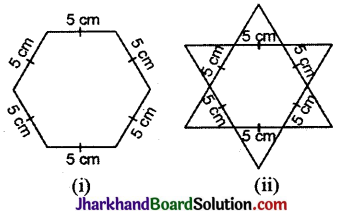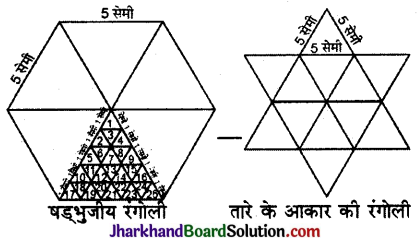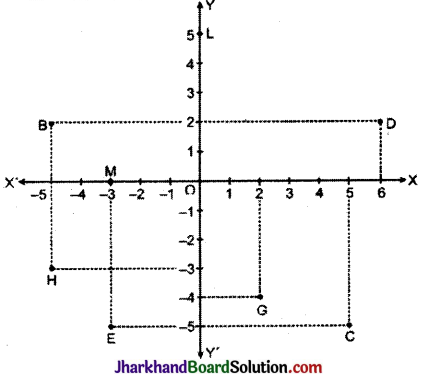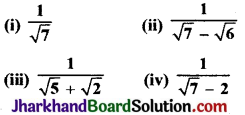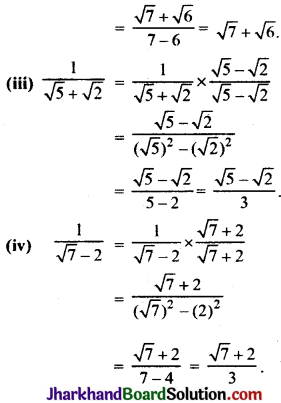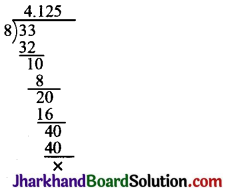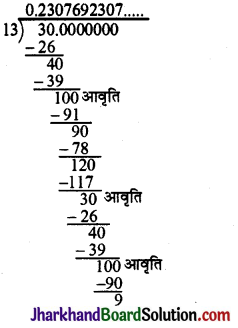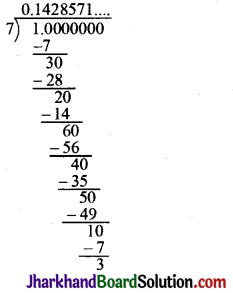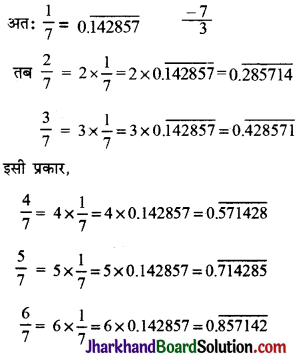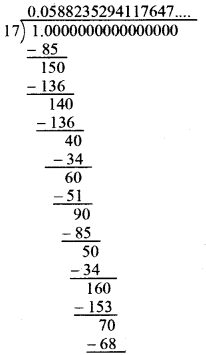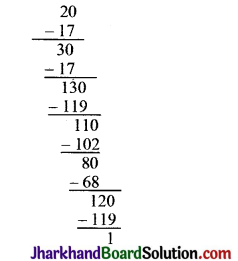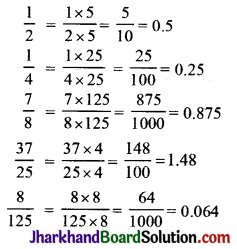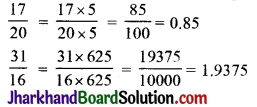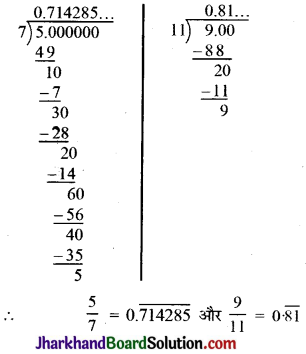Jharkhand Board JAC Class 9th English Solutions Beehive Chapter 6 My Childhood Textbook Exercise Questions and Answers.
JAC Board Class 9th English Solutions Beehive Chapter 6 My Childhood
JAC Class 9th English My Childhood Textbook Questions and Answers
Thinking About the Text
Activity: Find Dhanuskodi and Rameswaram on the map. What language(s) do you think are spoken there? What languages do you think the author, his family and his teachers spoke with one another?
धनुषकोड और रामेश्वरम् को मानचित्र पर खोजिये । आपके विचार में वहाँ कौन-सी भाषाएँ बोली जाती हैं ? आपके विचार में लेखक, उसका परिवार, उसके मित्र और उसके अध्यापक एक-दूसरे के साथ कौन-सी भाषाओं में बातचीत करते थे ?
नोट – चित्र को Text Book में पेज नं. 74 पर देखिए ।
Answer:
Dhanuskodi and Rameswaram are on the map at the south-east coast of India in Tamil Nadu State. I think people speak Tamil there. In my view, the author, his family, his teachers and friends also spoke in Tamil with one another.
धनुषकोड और रामेश्वरम् भारत के मानचित्र के दक्षिण-पूर्वी तट पर तमिलनाडु में हैं । मेरे विचार में लोग वहाँ तमिल भाषा बोलते हैं । मेरे विचार में लेखक, उसका परिवार, उसके अध्यापक और मित्र भी एक-दूसरे से तमिल भाषा ही बोलते थे ।
I. Answer these questions in one or two sentences each:
इनमें से प्रत्येक प्रश्न का उत्तर एक या दो वाक्यों में दीजिये :
Question 1.
Where was Abdul Kalam’s house ?
अब्दुल कलाम का घर कहाँ था ?
Answer:
Abdul Kalam’s house was on the Mosque Street in Rameswaram.
अब्दुल कलाम का घर रामेश्वरम् में मस्जिद – मार्ग पर था ।
Question 2.
What do you think Dinamani is the name of ? Give a reason for your answer.
आपके विचार में दिनमणि किसका नाम है ? अपने उत्तर का कारण बताओ ।
Answer:
Abdul Kalam looked for the stories about the war in the headlines of Dinamani. So it is clear that Dinamani is the name of a local newspaper.
अब्दुल कलाम दिनमणि के मुख्य शीर्षकों में युद्ध के बारे में कहानियाँ देखा करते थे। अतः यह स्पष्ट है कि दिनमणि एक स्थानीय समाचार-पत्र का नाम|

Question 3.
Who were Abdul Kalam’s school friends ? What did they later become ?
अब्दुल कलाम के स्कूल के मित्र कौन-कौन थे ? वे बाद में क्या बने ?
Answer:
Ramanadha Sastry, Aravindan and Sivaprakasan were Abdul Kalam’s school friends. Ramanadha became the high priest of Rameswaram temple. Aravindan started transport business and Sivaprakasan became a catering contractor in the Southern railways.
रमानद शास्त्री, अरविन्दन और शिवप्रकाशन अब्दुल कलाम के स्कूल के मित्र थे । रमानद रामेश्वरम् मन्दिर का मुख्य पुजारी बना। अरविन्दन ने यातायात ( परिवहन) का व्यापार प्रारम्भ कर दिया और शिवप्रकाशन दक्षिण रेलवे में खान-पान का ठेकेदार बन गया ।
Question 4.
How did Abdul Kalam earn his first wages ?
अब्दुल कलाम ने अपनी पहली मजदूरी कैसे कमाई ?
Answer:
Abdul Kalam earned his first wages by working for his cousin Samsuddin. He caught the bundles of newspapers thrown from the moving train during the Second World War. Then he handed these bundles to Samsuddin and got some money for his work.
अब्दुल कलाम ने अपने चचेरे भाई शमसुद्दीन के लिए काम कर अपनी पहली मजदूरी कमाई । वह द्वितीय विश्व युद्ध के दौरान चलती ट्रेन से फेंके गये अखबारों के बण्डलों को पकड़ा करते थे । तत्पश्चात् वह उन बण्डलों को शमसुद्दीन को दे दिया करते थे और अपने कार्य के लिए धन प्राप्त कर लेते थे ।
Question 5.
Had he earned any money before that ? In what way?
क्या उन्होंने इससे पहले भी कुछ पैसा कमाया था ? कैसे ?
Answer:
Yes, he had earned some money before it also. He collected tamarind seeds and sold them to a provision shop. Every day he received one anna for the work.
हाँ, उन्होंने इससे पहले भी पैसा कमाया था । वह इमली के बीज इकट्ठा करते थे और परचून की दुकान पर उन्हें बेचते थे । इस काम से हर रोज वह एक आना (one anna) प्राप्त कर लेते थे ।
II. Answer each of these questions in a short paragraph (about 30 words) :
इन प्रश्नों में से प्रत्येक का उत्तर एक संक्षिप्त अनुच्छेद (लगभग 30 शब्दों) में दीजिये :
Question 1.
How does the author describe :
(a) his father (b) his mother (c) himself ?
लेखक अपने-. (i) पिता (ii) माता और (iii) स्वयं का कैसे वर्णन करता है ?
Answer:
(a) His father – Jainulabdeen was Abdul’s father. He was an honest and hardworking man who provided a decent life to his children. He felt happy when he helped others.
उनके पिता – जैनुल आबदीन अब्दुल के पिता थे। वे ईमानदार व कर्मठ व्यक्ति थे जिन्होंने अपने बच्चों को एक अच्छा जीवन प्रदान किया था। जब वह दूसरों की सहायता करते थे तो बहुत खुश होते थे।
(a) His mother-Ashiamma, Abdul’s mother was a kind-hearted and generous lady who fed many outsiders everyday apart from her family.
उनकी माँ – आशि अम्मा, अब्दुल की दयालु व उदार माँ थीं जो प्रतिदिन अपने परिवार के अलावा अनेक बाहरी लोगों को भोजन कराती थीं।

(b) Abdul himself-Abdul considered himself a short boy with ordinary looks. He was born to tall and handsome parents. He belonged to a middle class Tamil family of Rameswaram.
अब्दुल स्वयं – अब्दुल खुद को एक साधारण दिखने वाला छोटे कद का बालक बताते हैं। उनके माता-पिता लम्बे व सुन्दर थे। वे एक मध्यमवर्गीय तमिल परिवार में पैदा हुये थे।
Question 2.
What characteristics does he say he inherited from his parents ?
उनके कथनानुसार उन्होंने अपने माता-पिता से क्या गुण ग्रहण किये ?
Answer:
According to Abdul Kalam, he inherited honesty and self discipline from his father. His father taught him to lead a life of austerity and avoid all inessential comforts. He inherited kindness and generosity from his mother Ashiamma.
अब्दुल कलाम के अनुसार उन्होंने अपने पिता से ईमानदारी और आत्म अनुशासन का गुण विरासत में प्राप्त किया। उनके पिता ने उन्हें सादगीपूर्ण जीवन जीने और अनावश्यक सुख सुविधाओं से बचना सिखाया। उन्होंने अपनी माँ आशि अम्मा से दयालुता व उदारती का गुण विरासत में पाया ।
III. Discuss these questions in the class with your teacher and then write down your answers in two or three paragraphs (60 words) each :
निम्नलिखित प्रत्येक प्रश्न पर कक्षा में अध्यापक के साथ चर्चा कीजिए और फिर अपने उत्तर दो या तीन अनुच्छेदों ( 60 शब्द) में लिखिए :
Question 1.
“On the whole, the small society of Rameswaram was very rigid in terms of the segregation of different social groups, ” says the author.
लेखक कहता है ” कुल मिलाकर रामेश्वरम् का छोटा-सा समाज विभिन्न सामाजिक समूहों के अलगाव के मामले में बहुत कठोर था ।”
(i) Which social groups does he mention ? Were these groups easily identifiable (for example, by the way they dressed)?
वह किन सामाजिक गुटों का उल्लेख करते हैं ? क्या इन गुटों को सरलता से पहचाना जा सकता था (उदाहरण के लिये, उनके वस्त्र पहनने के ढंग से) ?
(ii) Were they aware only of their differences or did they also naturally share friendships and experiences? (Think of the bedtime stories in Kalam’s house; of who his friends were; and of what used to take place in the pond near his house.)
क्या वे केवल अपनी विभिन्नता के बारे में अवगत थे या वे अपनी मित्रता व अनुभवों को स्वाभाविक ढंग से एक-दूसरे से मिल-जुल कर बाँटते थे ?
(कलाम के घर में सोते समय सुनाई जाने वाली कहानियाँ; उनमें उनके मित्र कौन थे; और उनके घर के पास के तालाब में क्या होता था इन सब के बारे में विचार कीजिये ।)
(iii) The author speaks both of people who were very aware of the difference among them and those who tried to bridge these differences. Can you identify such people in the text?
लेखक उन दोनों प्रकार के लोगों की बात करता है जो अपनी विभिन्नता के बारे में बहुत सचेत थे तथा उन लोगों की भी जो इन विभिन्नताओं की खाई को पाटना चाहते थे । क्या पाठ में से आप ऐसे लोगों की पहचान कर सकते हो ?

(iv) Narrate two incidents that show how differences can be created and also how they can be resolved. How can people change their attitudes?
कोई दो ऐसी घटनाएँ बताओ जिनसे पता चलता हो कि भिन्नताएँ कैसे बनाई जा सकती हैं और कैसे मिटाई भी जा सकती हैं। लोग अपना दृष्टिकोण कैसे बदल सकते हैं ?
Answer:
(i) The author Kalam talks about the people who belong to various castes and follow various religious preachings. Besides, he mentions two distinct social groups of Muslims and orthodox Brahmins, who were easily identified by vitue of their clothing, traditions, culture and rituals. Muslims wore a special kind of cap while Brahmins wore sacred threads, This is illustrated by the behaviour of the new teacher who asked Kalam to sit on the back bench according to his social ranking.
लेखक उन लोगों की चर्चा करते हैं जो विभिन्न जातियों से संबंधित हैं और वे विभिन्न धार्मिक सिद्धान्तों ( शिक्षाओं) को मानते हैं। इसके अतिरिक्त वह दो सामाजिक गुटों का उल्लेख करते हैं : मुसलमानों व रूढ़िवादी ब्राह्मणों का । हाँ इन गुटों को इनके वस्त्रों, प्रथाओं, संस्कृति एवं कर्मकाण्डों के आधार पर सरलता से पहचाना जा सकता था । मुसलमान लोग एक विशेष प्रकार की टोपी पहनते थे व ब्राह्मण जनेऊ पहनते थे। यह अलगाव कलाम के नए अध्यापक के व्यवहार से भी झलकता है जिन्होंने सामाजिक स्तर के अनुसार मुसलमान होने के कारण कलाम को कक्षा में सबसे पीछे बैठा दिया।
(ii) These social groups were aware of their differences but they naturally shared friendships and experiences. The author’s mother and grandmother told the stories of the Ramayana and the Prophet to the children in the house. The author was a Muslim but his friends were from orthodox Hindu Brahmin families. The author’s family arranged boats during the annual Shri Sita Rama Kalyanam ceremony. This ceremony was held in the middle of the pond called ‘Rama Tirtha’.
ये सामाजिक समूह अपनी भिन्नताओं से अवगत थे, किन्तु वे स्वाभाविक रूप से मित्रता व अनुभव बाँटते थे । लेखक की माँ व दादी माँ घर में बच्चों को रामायण व पैगम्बर मुहम्मद साहब की कहानियाँ सुनाया करती थीं । लेखक मुसलमान थे किन्तु उनके मित्र रूढ़िवादी हिन्दू ब्राह्मण परिवारों से थे । लेखक का परिवार ‘श्री सीताराम कल्याणम्’ नामक वार्षिक समारोह के दौरान नावों का प्रबन्ध किया करता था । यह समारोह ‘रामतीर्थ’ नामक सरोवर के मध्य में होता था।
(iii) The new teacher at Rameswaram Elementary School and the author’s science teacher Sivasubramania Iyer’s wife were aware of the differences between the Muslims and the Hindus. But Lakshmana Sastry and Sivasubramania Iyer tried to bridge these differences. Scolded by Lakshamana Sastry, the new teacher changed his attitude. In the same way, inspired by Sivasubramania lyer, his wife served food to the author with her own hands in her kitchen.
रामेश्वरम् प्रारम्भिक स्कूल का नया अध्यापक व लेखक के विज्ञान अध्यापक शिवसुब्रमण्य अय्यर की पत्नी मुसलमानों व हिन्दुओं के मध्य भिन्नताओं के प्रति सचेत थे । लेकिन लक्ष्मण शास्त्री व शिवसुब्रमण्य अय्यर ने इन भिन्नताओं की खाई को पाटने का प्रयास किया । लक्ष्मण शास्त्री द्वारा फटकारने के बाद, नये अध्यापक ने अपना दृष्टिकोण बदल दिया। इसी प्रकार शिवसुब्रमण्य अय्यर से प्रभावित होकर उनकी पत्नी ने लेखक को अपनी रसोईघर में अपने हाथ से भोजन परोसा !
(iv) Two incidents in the text show how differences can be created. A new teacher at the Rameswaram Elementary School asked the author to sit on the back bench because he was a Muslim and was sitting beside a Hindu priest’s son. The next incident took place at the house of Sri Sivasubramania Iyer. His wife refused to serve food to the author in her ritually pure kitchen
Both changed their attitudes later. The new teacher was scolded by Lakshamana Sastry. He realised his mistake and promised to change his attitude. Sivasubramania Iyer’s wife herself realised that there was no difference between the two communities. Later, she served the author food with her own hands in her kitchen.
पाठ में दो घटनाएँ भिन्नताओं को उत्पन्न करना दर्शाती हैं । रामेश्वरम् प्रारम्भिक स्कूल के नये अध्यापक ने लेखक को पीछे की बेंच पर बैठने के लिए कहा क्योंकि वह एक मुसलमान था और एक हिन्दू पुजारी के पुत्र की बगल में बैठा हुआ था । दूसरी घटना शिवसुब्रमण्य अय्यर के घर घटित हुई । उनकी पत्नी ने अपनी धार्मिक अनुष्ठानों से पवित्र रसोई में लेखक के लिए भोजन परोसने से मना कर दिया । दोनों ने ही बाद में अपना व्यवहार बदल लिया । नये अध्यापक को लक्ष्मण शास्त्री के द्वारा डाँटा गया । उसने अपनी गलती महसूस की और अपने विचार बदलने का वायदा किया । शिवसुब्रमण्य अय्यर की पत्नी ने स्वयं ही अपनी गलती महसूस कर ली कि दोनों समुदायों में कोई अन्तर नहीं है । बाद में उन्होंने अपनी रसोई में अपने हाथों से लेखक को भोजन परोसा।

Question 2.
(i) Why did Abdul Kalam want to leave Rameswaram?
अब्दुल कलाम रामेश्वरम् से क्यों जाना चाहते थे ?
(ii) What did his father say to this ?
उनके पिताजी ने इसके बारे में क्या कहा ?
(iii) What do you think his words mean? Why do you think he spoke those words?
आपके विचार में उनके शब्दों का क्या अर्थ है ? आपके विचार में उन्होंने ये शब्द क्यों कहे?.
Answer:
(i) Abdul Kalam wanted to leave Rameswaram to study at the district headquarters in Ramanathapuram.
अब्दुल कलाम जिला मुख्यालय रामनाथपुरम् में पढ़ाई करने के लिए रामेश्वरम् से जाना चाहते थे ।.
(ii) When Abdul Kalam asked his father for permission to leave Rameswaram, he gave his consent and said, “Abul! I know you have to go away to grow. Does the seagull not fly across the sun, alone and without a nest?” But Abdul Kalam’s mother did not want her son to leave home. So his father quoted Khalil Gibran to console his hesitant mother, “Your children are not your children. They are the sons and daughters of Life’s longing for itself. You may give them your love but not your thoughts”.
जब अब्दुल कलाम ने अपने पिता से रामेश्वरम् से जाने की अनुमति माँगी तो उन्होंने अपनी सहमति दे दी और कहा, “अबुल ! मैं जानता हूँ कि तुम्हें उन्नति करने के लिए जाना है । क्या समुद्री पक्षी (समुद्री काक) सूरज से आगे तक अकेला व बिना घोंसले के नहीं उड़ता?” किन्तु अब्दुल कलाम की माँ नहीं चाहती थीं कि उनका पुत्र घर छोड़कर जाये। इसलिए उनके पिता ने उनकी दुविधा में पड़ी माँ को सान्त्वना प्रदान करने के लिए खलील जिब्रान की पंक्तियाँ उद्धृत कीं, “आपके बच्चे आपके बच्चे ही नहीं हैं । वे जीवन की लालसा के पुत्र व पुत्रियाँ हैं !……तुम उन्हें प्यार दे सकते हो किन्तु उन्हें अपने विचार नहीं दे सकते। ”
(iii) His words bore great meaning. First, he inspired his son to go ahead alone giving the example of the seagull. Secondly, he explained to his wife to give their son opportunity to get higher education and to make progress. Parents’ thoughts should not be imposed upon children. They should be given opportunities to grow independently.
उनके शब्द का अर्थ गंभीर था । पहले, उन्होंने अपने पुत्र को समुद्री काक का उदाहरण देकर अकेले ही आगे बढ़ने को प्रेरित किया । बाद में, उन्होंने अपनी पत्नी को समझाया कि वह अपने पुत्र को उन्नति करने के लिए उच्च शिक्षा के अवसर प्रदान करे । बच्चों के ऊपर उनके माता-पिता के विचार नहीं थोपे जाने चाहिये । उन्हें स्वतन्त्रतापूर्वक विकास करने के अवसर दिये जाने चाहिये ।
Thinking about Language
1. Find the sentences in the text where these words occur:
पाठ में से उन वाक्यों को ढूँढ़िए जहाँ ये शब्द आए हैं:
erupt, surge, trace, undistinguished, casualty
Look these words up in a dictionary which gives examples of how they are used. Now answer the following questions :
शब्दकोश में इन शब्दों को देखिए, जिसमें उदाहरण दिये गये हैं कि ये शब्द कैसे प्रयोग किये जाते हैं । अब निम्नलिखित प्रश्नों के उत्तर दीजिए :
1. What are the things that can erupt? Use examples to explain the various meanings of erupt. Now do the same for the word surge. What things can surge?
वे कौन-सी वस्तुएँ है जो अचानक प्रारम्भ हो सकती हैं। ‘erupt’ शब्द के विभिन्न अर्थ स्पष्ट करने के लिए उदाहरणों का प्रयोग कीजिए । अब ‘surge’ शब्द के लिए भी ऐसा ही करें । कौन-सी वस्तुएँ ‘surge कर सकती हैं ?
2. What are the meanings of the word trace and which of the meanings is closest to the word in the text?
‘trace’ शब्द के क्या-क्या अर्थ हैं तथा पाठ में इस शब्द का कौन-सा अर्थ निकटतम है ?

3. Can you find the word undistinguished in your dictionary? (If not, look up the word distinguished and say what undistinguished must mean.)
क्या आप ‘undistinguished’ शब्द को अपने शब्दकोश में ढूँढ़ सकते हो ? (यदि नहीं तो distinguished शब्द देखिये और बताइये कि undistinguished का अर्थ क्या होना चाहिए । )
Answer:
1. erupt:
- When something erupts, it happens suddenly.
- When the people in a place become angry or violent, we can say they have erupted.
- When riots or war erupt, it suddenly begins.
- When a volcano erupts, it throws out lava, ash etc.
surge:
- Surge is a sudden great increase in something.
- If people or vehicles surge forward, it means they move forward.
- If water surges, it moves forward suddenly and powerfully.
- If an emotion surges in you, you feel it suddenly.
2. trace:
- Its meanings are: to track; to follow step by step; to detect; to mark the outline of something; to find out.
- The word in the text means ‘to find out’.
3. Undistinguished: not eminent; ordinary.
II. 1. Match the phrases in Column A with their meanings in Column B :
स्तम्भ ‘A’ में दिये गये वाक्यांशों को स्तम्भ ‘B’ में दिये गये उनके अर्थों से मिलाइये :
| A | B |
| (i) broke out (ii) in accordance with (iii) a helping hand (iv) could not stomach (v) generosity of spirit (vi) figures of authority | (a) an attitude of kindness, a readiness to give freely (b) was not able to tolerate. (c) began suddenly in a violent way (d) assistance (e) persons with power to make decisions (f) according to a particular rule, principle, or system |
Answer:
| A | B |
| (i) broke out (ii) in accordance with (iii) a helping hand (iv) could not stomach (v) generosity of spirit (vi) figures of authority | (c) began suddenly in a violent way (f) according to a particular rule, principle, or system (d) assistance (b) was not able to tolerate. (a) an attitude of kindness, a readiness to give freely (e) persons with power to make decisions |
2. Study the words in italics in the sentences below. They are formed by prefixing un- or in- to their antonyms (words opposite in meanings).
निम्नलिखित वाक्यों में तिरछे छपे शब्दों को पढ़िये । इनकी रचना इनके विलोम शब्दों में un या in उपसर्ग जोड़कर की गई है ।
- I was a short boy with rather undistinguished looks. (un + distinguished)
- My austere father used to avoid all inessential comforts. (in + essential)
- The area was completely unaffected by the war. (un + affected)
- He should not spread the poison of social inequality and communal intolerance. (in + equality, in + tolerance)
Now form the opposites of the words below by prefixing un-or in-. The prefix in- can also have the forms il-, ir- or im- (for example: illiterate -il +literate, impractical -im + practical, irrational -ir + rational). You may consult a dictionary if you wish.
अब निम्नलिखित शब्दों में un या in उपसर्ग जोड़कर विलोम शब्दों की रचना कीजिये । ‘ir’ या ‘im’ भी हो सकते हैं (उदाहरणार्थ -illiterate – il + literate, impractical – im + practical, irrational – ir + rational) । आप चाहें तो शब्दकोष देख सकते हैं।

Answer:

III. Passive Voice
Study these sentences: इन वाक्यों को पढ़िये :
- My parents were regarded as an ideal couple.
- I was asked to go and sit on the back bench.
- Such problems have to be confronted.
इन वाक्यों में तिरछी छपी हुई क्रियाएँ be क्रिया के किसी रूप तथा past participle से बनाई गई हैं । (उदाहरणार्थ – were + regarded, was + asked, be+ confronted)। ये वाक्य ‘कौन क्या करता है’ की बजाय ‘क्या होता है – इस बात पर ध्यान केन्द्रित करते हैं । ध्यान दीजिये कि इन वाक्यों में कार्य के कर्त्ता का उल्लेख नहीं किया गया है ।

आवश्यकतानुसार हम कार्य के कर्त्ता का उल्लेख by – phrase में कर सकते हैं । उदाहरणार्थ :
- The tree was struck by lightning.
- The flag was unfurled by the Chief Guest.
IV. Rewrite the sentences below, changing the verbs in brackets into the passive form:
नीचे दिये गये वाक्यों की कोष्ठकों में दी गयी verbs को Passive form में बदलकर पुन: लिखियेः
1. In yesterday’s competition the prizes (give away) by the Principal.
2. In spite of financial difficulties, the labourers (pay) on time.
3. On the Republic Day, vehicles (not allow) beyond this point.
4. Second-hand books (buy and sell) on the pavement every Saturday.
5. Elections to the Lok Sabha (hold) every five years.
6. Our National Anthem (compose) Rabindranath Tagore.
Answer:
1. In yesterday’s competition the prizes were given away by the Principal.
2. In spite of financial difficulties, the labourers were paid on time.
3. On Republic Day, vehicles are not allowed beyond this point.
4. Second-hand books are bought and sold on the pavement every Saturday.
5. Elections to the Lok Sabha are held every five years.
6. Our National Anthem was composed by Rabindranath Tagore.
V. Rewrite the paragraphs below, using the correct form of the verb given in bracket:
निम्नलिखित अनुच्छेदों को कोष्ठकों में दी गई क्रियाओं के सही रूप का प्रयोग करते हुए पुनः लिखिए :
1. How Helmets Came to be Used in Cricket
Nari Contractor was the Captain and an opening batsman for India in the 1960s. The Indian cricket team went on a tour to the West Indies in 1962. In a match against Barbados in Bridgetown, Nari Contractor (seriously injure and collapse). In those days, helmets (not wear). Contractor (hit) on the head by a bouncer from Charlie Griffith. Contractor’s skull (fracture). The entire team (deeply concern). The West Indies players (worry). Contractor (rush) to hospital. He (accompany) by Frank Worrell, the Captain of the West Indies Team. Blood (donate) by the West Indies players. Thanks to the timely help, Contractor (save). Now a days helmets (routinely use) against bowlers.
Answer:
Nari Contractor was the Captain and an opening batsman for India in the 1960s. The Indian cricket team went on a tour to the West Indies in 1962. In a match against Barbados in Bridgetown Nari Contractor was seriously injured and collapsed. In those days, helmets were not worn. Contractor was hit on the head by a bouncer from Charlie Griffith. Contractor’s skull was fractured.
The entire team was deeply concerned. The West Indies players were worried. Contractor was rushed to hospital. He was accompanied by Frank Worrell, the Captain of the West Indies Team. Blood was donated by the West Indies players. Thanks to the timely help, Contractor was saved. Nowadays helmets are routinely used against bowlers.
2. Oil from Seeds
Vegetable oils (make) from seeds and fruits of many plants growing all over the world, from tiny sesame seeds to big juicy coconuts. Oil (produce) from cotton seeds, groundnuts, soyabeans and sunflower seeds, Olive oil (use) for cooking, salad dressing etc. Olives (shake) from the trees and (gather) up, usually by hand. The olives (ground) to a thick paste which is spread onto special mats. Then the mats (layer) up on the pressing machine which will gently squeeze them to produce olive oil.
Answer:
Vegetable oils are made from seeds and fruits of many plants growing all over the world, from tiny sesame seeds to big juicy coconuts. Oil is produced from cotton seeds, groundnuts, soyabeans and sunflower seeds. Olive oil is used for cooking, salad dressing etc. Olives are shaken from the trees and are gathered up, usually by hand. The olives are grounded to a thick paste which is spread onto special mats. Then the mats are layered up on the pressing machine which will gently squeeze them to produce olive oil.
Dictation.
Let the class divide itself into three groups. Let each group take down one passage that the teacher dictates. Then put the passages together in the right order:
कक्षा को तीन समूहों में विभाजित करें। प्रत्येक समूह अध्यापक द्वारा बोले गये एक अनुच्छेद को लिखे। तत्पश्चात् अनुच्छेदों को सही क्रम में रखो :
To Sir, with Love
1. From Rameswaram to the Rashtrapati Bhavan, it had been a long journey. Talking to Nona Walia on the eve of Teachers’ Day, Dr A.P.J. Abdul Kalam talked about life’s toughest lessons learnt and his mission-being a teacher to the Indian youth. “A proper education would help nurture a sense of dignity and self-respect among our youths”, said Dr Kalam. There was still a child in him though, and he was still curious about learning new things. Life had a mission for A.P.J. Abdul Kalam.

2. Nonetheless, he remembered his first lesson in life and how it changed his destiny. “I was studying in Standard V, and must have been all of 10. My teacher, Sri Sivasubramania Iyer was telling us how birds fly. He drew a diagram of a bird on the blackboard, depicting the wings, tail and the body with the head and then explained how birds soar to the sky. At the end of the class, I. said, I didn’t understand. Then he asked the other students if they had understood, but nobody had understood how birds fly,” he recalled.
3. “That evening, the entire class was taken to Rameswaram shore,” Dr Abdul Kalam continued, “My teacher showed us sea birds. We saw marvellous formations of them flying and how their wings flapped. Then my teacher asked us, “Where is the birds’ engine and how is it powered ?” I knew then that birds are powered by their own life and motivation.
I understood all about bird’s dynamics. This was real teaching – a theoretical lesson coupled with a live practical example. Sri Sivasubramania Iyer was a great teacher.” “That day, my future was decided. My destiny was changed. I knew my future had to be about flight and flight systems.”
Note: Passage is correctly punctuated. It’s a class activity, so no answer is required.
Speaking
Here is a topic for you to :
यहाँ आपके लिए एक विषय है :
1. think about; (विचार करने के लिए)
2. give your opinion on. (अपना मत देने के लिए।)
Find out what other people think about it. Ask your friends/seniors/parents to give you their opinion.
पता लगाइये कि अन्य लोग उसके बारे में क्या सोचते हैं। अपने मित्रों, वरिष्ठों व माता-पिता के विचार जानिये ।
‘Career Building is the Only Goal of Education’
शिक्षा का एकमात्र उद्देश्य भविष्य का निर्माण करना है ।
Or
‘Getting a Good Job is More Important than Being a Good Human Being.’
एक अच्छा मानव बनने की बजाय एक अच्छी नौकरी पाना ज्यादा महत्त्वपूर्ण है ।
You can use the following phrases:
आप निम्नलिखित वाक्यांशों का प्रयोग कर सकते हैं :
(i) While giving your opinon:
(अपना मत रखते समय)
I think that ……. in my opinion ………..
It seems to me that ………..
I am of the view that…………
If you ask me …………………
As far as I know……………
(ii) Saying what other people think:
(यह कहते हुए दूसरे लोग क्या सोचते हैं) :
According to some…..
Quite a few think ………
Some others favour…………
Thirty percent of the people disagree………
Fifty percent of them strongly feel……….
(iii) Asking for others’ opinions :
(दूसरों का मत पूछते हुए) :
What do you think about………….
What is your opinion about……….
What do you think of……..
Does this make you believe…………
Do you agree………….
Answer:
Career building is the only goal of education.
(शिक्षा का एकमात्र उद्देश्य भविष्य का निर्माण करना है ।)
Dear Friends
This is an important question in the present time, “What is the purpose of education?” Is it to prepare ourselves for a better career so that we may earn only money? I have asked the question quite a many young persons and their parents. Most young persons are attracted by the glamour of modern life. They wish to have a luxurious life. They want to pursue higher edcuation to find a highly paid job and satisfy their ambition.

But I think that is not the goal of education. If we pursue education for monetary sake only, we are sure to lose human values. I hope you also will agree that money brings no peace. Education must promote human values. No doubt we should have a good career. But we must not be devoid of love, sympathy, and kindness. Without these human emotions man will turn into a monster. He will become a machine or a robot.
प्रिय साथियों,
यह आधुनिक समय का एक प्रमुख प्रश्न है, “शिक्षा का क्या उद्देश्य है ?” क्या यह हमें एक सुखद भविष्य बनाने के लिये तैयार करती है ताकि हम केवल धन कमा सकें । मैंने यह प्रश्न अनेक युवा व्यक्तियों तथा उनके माता-पिता से पूछा हैं। अधिकतर युवा आधुनिक जीवन की चकाचौंध से प्रभावित हैं । वे विलासितापूर्ण जीवन जीना चाहते हैं । वे अधिक तनख्वाह वाली नौकरी पाने के लिए उच्च शिक्षा प्राप्त करना चाहते हैं तथा अपनी महत्वाकांक्षा को पूरा करना चाहते है। किन्तु मेरा विचार है कि यह शिक्षा का उद्देश्य नहीं है ।
यदि हम शिक्षा केवल’ धन प्राप्ति के लिये ही पाना चाहते हैं तो हम मानव मूल्यों को निश्चित रूप से खो देंगे । मैं आशा करती/करता हूँ कि आप इस बात से सहमत होंगे कि धन शान्ति प्रदान नहीं करता है । शिक्षा को मानव मूल्यों के हित में बढ़ावा देना चाहिये । नि:संदेह हमारा कैरियर अच्छा होना चाहिये । किन्तु हमें प्रेम, दया व सहानुभूति की भावनाओं से वंचित नहीं होना चाहिये । इन मानव मूल्यों के अभाव में मनुष्य एक दानव बन जायेगा । वह एक मशीने या रोबोट बन जायेगा ।
Writing
Think and write a short account of what life in Rameswaram in the 1940s must have been like. (Were people rich or poor? Hard working or lazy? Hopeful of change, or resistant to it ?)
रामेश्वरम् में वर्ष 1940 के दशक में जीवन कैसा रहा होगा इसके विषय में सोचिये और एक संक्षिप्त वर्णन लिखिये । · लोग धनी थे या निर्धन ? परिश्रमी या आलसी ? परिवर्तन के प्रति आशावान थे या उसके विरुद्ध ?
Answer:
Rameswaram is a small island town on the south east coast of India. Here, the small society was very rigidly divided into different social groups in the 1940. People were not rich. They led austere lives. There were schools and students were given modern education. They were learning science also.
But in spite of social segregation, there was feeling of cooperation among the people. There were some people with orthodox outlooks, whereas some others were open minded. They wanted to change the system. People on the whole were hardworking. After the war, they looked forward to a great change.

रामेश्वरम् भारत के दक्षिण-पूर्वी तट पर स्थित एक द्वीपीय उपनगर है । 1940 के दशक में यहाँ छोटा-सा समाज विभिन्न सामाजिक समूहों में बहुत कठोरता से बँटा हुआ था । लोग अमीर नहीं थे । वे साधारण जीवन जीते थे । वहाँ स्कूल थे और स्कूलों में विद्यार्थियों को आधुनिक शिक्षा दी जाती थी । वे विज्ञान भी पढ़ते थे । किन्तु लोगों में सामाजिक भिन्नता के बावजूद सहयोग की भावना थी । वहाँ कुछ कट्टरपंथी लोग थे, तो कुछ अन्य खुले दिमाग वाले लोग भी थे और वे व्यवस्था को बदलना चाहते थे। कुल मिलाकर लोग. कठिन परिश्रमी थे । युद्ध के बाद वे एक महान परिवर्तन की आशा कर रहे थे ।
JAC Class 9th English My Childhood Important Questions and Answers
Short Answer Type Questions
Answer the following questions in about 30 words each:
निम्नांकित प्रत्येक प्रश्न का उत्तर लगभग 30 शब्दों में दीजिए :
Question 1.
What does the author tell about his father ?
लेखक अपने पिता के विषय में क्या बताता है ?
Answer:
According to the author, his father had neither much formal education nor much wealth. But he had great innate wisdom and a true nobleness of spirit. He believed in simple living and used to avoid unnecessary comforts.
लेखक के अनुसार, उसके पिता के पास न तो अधिक औपचारिक शिक्षा थी और न ही अधिक धन । परन्तु उनमें जन्मजात महान बुद्धिमत्ता व आत्मा की सच्ची श्रेष्ठता थी । वह साधारण जीवन में विश्वास करते थे तथा अनावश्यक सुख-सुविधाओं से बचते थे ।
Question 2.
How was the author’s childhood ?
लेखक का बचपन कैसा था ?
Answer:
The author had very secure childhood, both materially and emotionally. All needs such as food, medicine and clothes were provided for. Besides, he had ideal parents.
उनका बचपन भौतिक व भावनात्मक, दोनों दृष्टियों से सुरक्षित था। भोजन, दवा और कपड़ों जैसी सभी आवश्यकताओं की पूर्ति होती थी । इसके अतिरिक्त, उनके माता-पिता आदर्श माता – पिता थे ।
Question 3.
What did Dr Kalam’s father avoid ?
डा. कलाम के पिता किन बातों से बचा करते थे ?
Answer:
His father used to avoid all inessential comforts and luxuries. But all the necessary things like food, medicine and clothes were provided to keep the life comportable.
उनके पिता सभी अनावश्यक सुख-सुविधाओं और विलासिताओं से बचा करते थे । परन्तु जीवन को भोजन, दवा तथा कपड़ों जैसी सभी आवश्यक वस्तुएँ उपलब्ध करा दी जाती थीं ।
Question 4.
How would the author earn one anna a day ?
लेखक प्रतिदिन एक आना कैसे कमा लेता था ?
Answer:
During the Second World War, a sudden demand for tamarind seeds came up in the market. The author used to collect the seeds and sell them to a provision shop. This gave him an anna a day.
द्वितीय विश्वयुद्ध के दौरान बाजार में अचानक इमली के बीजों की माँग उत्पन्न हो गई थी । लेखक इमली के बीज एकत्र किया करता था और उन्हें एक परचून की दुकान पर बेच देता था । इससे उसे प्रतिदिन एक आना मिल जाता था ।

Question 5.
Give an account of the author’s childhood friends and their family backgrounds.
लेखक के बचपन के मित्रों व उनकी पारिवारिक पृष्ठभूमियों के विषय में बताइये ।
Answer:
The author had three close friends in his childhood – Ramanadha Sastry, Aravindan and Sivaprakasan. All these boys were from orthodox Hindu Brahmin families. But they never felt any difference with the author.
बचपन में लेखक के तीन घनिष्ठ मित्र थे- रमानद शास्त्री, अरविन्दन और शिवप्रकाशन। ये सब लड़के रूढ़िवादी हिन्दू ब्राह्मण परिवारों से थे । लेकिन उन्होंने कभी भी लेखक से कोई भिन्नता नहीं रखी।
Question 6.
Which stories were told to the children at the bed time in the author’s family?
लेखक के परिवार में बच्चों को सोने के समय कौन- सी कहानियाँ सुनाई जाती थीं?
Answer:
The author’s mother and grandmother would tell the children of the family some stories at the bedtime. These stories were the events from the Ramayana and from the life of the Prophet.
लेखक की माँ व दादी सोने के समय परिवार के बच्चों को कुछ कहानियाँ सुनाया करती थीं । ये कहानियाँ रामायण की व पैगम्बर साहब के जीवन की घटनाएँ होती थीं ।
Question 7.
How did the author and his friend feel when he was asked to go and sit on the back bench?
जब लेखक को पीछे की बेंच पर जाकर बैठने के लिए कहा गया तो उसने व उसके मित्र ने कैसा अनुभव किया ?
Answer:
When the author was asked to go and sit on the back bench, he felt very sad. His friend, Ramanadha Sastry also looked very downcast. He even started to weep.
जब लेखक से पीछे की बेंच पर जाकर बैठ जाने को कहा गया तो उसे बहुत दुःख हुआ । उसका मित्र रमानद शास्त्री भी बहुत उदास प्रतीत हुआ । उसने रोना भी शुरू कर दिया ।
Question 8.
Who was Lakshmana Sastry and what did he tell the new teacher ?
लक्ष्मण शास्त्री कौन थे और उन्होंने नये अध्यापक से क्या कहा ?
Answer:
Lakshmana Sastry was Ramanadha Sastry’s father. He told the new teacher that he should not spread the poison of social inequality and communal intolerance in the minds of inno- cent children. He asked him to apologise or leave the island.
लक्ष्मण शास्त्री, रामनाथ शास्त्री के पिता थे। उन्होंने नये अध्यापक से कहा कि वह मासूम बच्चों के मन में सामाजिक असमानता व साम्प्रदायिकता का जहर न फैलाये । उन्होंने उससे कहा कि वह माफी माँगे अथवा द्वीप को छोड़कर चला जाये ।
Question 9.
What was the main quality of Abdul Kalam’s science teacher, Sivasubramania Iyer ?
अब्दुल कलाम के विज्ञान- अध्यापक शिवसुब्रमण्य अय्यर का मुख्य गुण क्या था ?
Answer:
Abdul Kalam’s science teacher was an ordhodox Brahmin. But he tried his best to break social barriers so that people from different backgrounds might mingle easily.
अब्दुल कलाम के विज्ञान- अध्यापक कट्टर परम्परावादी ब्राह्मण थे । परन्तु उन्होंने सामाजिक बन्धनों को तोड़ने का भरपूर प्रयास किया ताकि विभिन्न पृष्ठभूमियों के लोग आसानी से घुल-मिल सकें ।
Question 10.
How did Mr Iyer treat the author at his home ?
श्री अय्यर ने अपने घर पर लेखक के साथ कैसा व्यवहार किया ?
Answer:
Mr Iyer’s wife refused to serve the author in her ritually pure kitchen, but he (Mr Iyer) remained calm. He served the author with his own hands and sat down beside him to eat his meal.
श्री अय्यर की पत्नी ने लेखक को धार्मिक अनुष्ठानों से पवित्र अपने रसोईघर में भोजन परोसने से मना कर दिया परन्तु वह (श्री अय्यर) शान्त रहे । उन्होंने लेखक को स्वयं अपने हाथों से भोजन परोसा और उनकी बगल में बैठकर भोजन किया ।

Question 11.
What change did the author notice in her behaviour when he went to Mrs Iyer’s house the next time?
जब लेखक दूसरी बार श्रीमती अय्यर के घर गया तो उसने उनके व्यवहार में क्या परिवर्तन देखा?
Answer:
When the author visited Mrs Iyer’s house for the first time, she refused to serve food to the author in her kitchen. But when he went to her house the next time, she took him inside her kitchen and served him food with her own hands.
जब लेखक श्रीमती अय्यर के घर पहली बार गए तो उसने लेखक को अपनी रसोई में भोजन परोसने से मना कर दिया था । लेकिन जब वह अगली बार उनके घर गया तो वह उसे अपने रसोईघर में ले गईं और उसे अपने हाथों से भोजन परोसा ।
Question 12.
According to the author, how many people did his mother feed everyday ?
लेखक के अनुसार उनकी माँ प्रतिदिन कितने लोगों को भोजन कराती थीं ?
Answer:
Even the author did not know the exact number of such people. But certainly she fed far more people than all the members in their family. It was all out of her kind heartedness and generosity.
लेखक ऐसे लोगों की ठीक-ठीक संख्या नहीं जानता था । किन्तु निश्चित रूप से वह परिवार की कुल सदस्य संख्या से कहीं ज्यादा लोगों को भोजन कराती थीं । यह उनकी दयालुता और उदारता ही थी ।
Question 13.
What did the author’s family use to do during the annual Shri Sita Ram Kalyanam ceremony ?
लेखक का परिवार श्री सीता राम कल्याणम् वार्षिक उत्सव के दौरान क्या किया करता था ?
Answer:
During this ceremony, the author’s family used to arrange boats with a special platform for carrying idols of the Lord (God) from the temple to the marriage site which was situated in the middle of a pond called ‘Rama Tirth’.
उत्सव के दौरान लेखक का परिवार मन्दिर से रामतीर्थ नामक सरोवर के मध्य स्थित विवाह स्थल तक भगवान की मूर्तियाँ ले जाने के लिए विशेष मंच वाली नावों की व्यवस्था किया करता था ।
Question 14.
What did Gandhiji declare and when ?
गाँधी जी ने कब व क्या घोषणा की ?
Answer:
When the Second World War was over, Gandhiji declared that Indians would build their own India. Then the whole country was filled with an unprecedented optimism.
जब द्वितीय विश्व युद्ध समाप्त हुआ तब गाँधी जी ने घोषणा की कि भारतीय स्वयं अपने भारत का निर्माण करेंगे। तब सारा देश एक अभूतपूर्व आशावादिता से भर गया ।
Long Answer Type Questions
Answer the following questions in about 60 words each:
निम्नलिखित प्रत्येक प्रश्न का उत्तर लगभग 60 शब्दों में लिखिए :
Question 1.
What do you know about the parents of the author ? लेखक के माता-पिता के विषय में आप क्या जानते हैं ?
Answer:
The author’s father was a wise man. His name was Jainulabdeen. He was not highly educated. He didn’t possess much wealth. So he avoided all inessential comforts. However all necessities were provided like food, medicine and clothes. His mother was an ideal housewife. Her name was Ashiamma. She was so generous that she fed far more outsiders than all the members of her family put together.
लेखक के पिता एक बुद्धिमान व्यक्ति थे। उनका नाम जैनुल आबदीन था। वे बहुत शिक्षित नहीं थे। उनके पास ज्यादा धन नहीं था। इसलिए वे सभी अनावश्यक सुख सुविधाओं से बचा करते थे। फिर भी भोजन, औषधि और वस्त्रों जैसी सभी आवश्यक वस्तुएं उपलब्धा करा दी जाती थीं। उनकी माँ एक आदर्श गृहिणी थीं। उनका नाम आशिअम्मा था। वह इतनी उदारें थीं कि अपने परिवार के कुल सदस्यों की संख्या से ज्यादा लोगों को वह भोजन कराती थीं ।
Question 2.
What kind of lady was Dr Kalam’s mother ?
डा. कलाम की माँ किस प्रकार की महिला थीं ?
Answer:
Dr Kalam’s mother was an ideal housewife. Her name was Ashiamma. She was a kind lady. Everyday she fed many people in her house. She loved her family very much. She told the children the stories from the Ramayana and from the life of the Prophet. When Dr Kalam was about to leave for Ramanathapuram, she was very upset because she loved him-very much.
डा. कलाम की माँ एक आदर्श गृहिणी थीं। उनका नाम आशिअम्मा था । वे एक दयालु महिला थीं। वे प्रतिदिन अपने घर में बहुत-से लोगों को भोजन कराती थीं । वे अपने परिवार से अत्यधिक प्रेम करती थीं। वे बच्चों को रामायण व पैगम्बर मोहम्मद के जीवन की कहानियाँ सुनाया करती थीं । जब डा. कलाम रामनाथपुरम् जाने . लगे, तो वे बहुत बेचैन हो उठी थीं क्योंकि वे उन्हें बहुत प्रेम करती थीं ।
Question 3.
How did Abdul Kalam earn his own money for the first time ?
अब्दुल कलाम ने अपनी पहली मजदूरी कैसे कमाई ?
Answer:
During the Second World War the train did not stop at Rameswaram station. So the bundles of the newspapers were thrown out from the running train on the Rameswaram Road between Rameswaran and Dhanushkodi. In this situation, his cousin, Samsuddin needed a boy to catch the bundles. Kalam used to help him. For this, Samsuddin paid him some money. In this way, Abdul Kalam earned his first wages.
द्वितीय विश्वयुद्ध के दौरान रेलगाड़ी रामेश्वरम् स्टेशन में नहीं रुकती थी । अतः रामेश्वरम् और धनुषकोडि के बीच रामेश्वरम रोड पर अखबारों के बंडल चलती हुई गाड़ी से बाहर फेंक दिये जाते थे । इस परिस्थिति में उनके चचेरे भाई शमसुद्दीन को एक लड़के की जरूरत थी जो बंडल लपक सके। कलाम उसकी सहायता किया करते थे । इसके लिए शमसुद्दीन उन्हें कुछ धन देता था । इस प्रकार अब्दुल कलाम ने अपनी पहली मजदूरी कमाई ।

Question 4.
What kind of poison was the new young teacher spreading in the minds of the students?
युवा अध्यापक छात्रों के मन में किस तरह का जहर फैला रहा था ?
Answer:
Abdul Kalam’s three close friends were from traditional Hindu Brahmin families. But there was no religious difference among them. Abdul Kalam always sat in the front row next to his Brahmin friend. The new teacher did not allow Kalam, a Muslim boy, to sit beside a Brahmin boy. In this way, he was spreading the poison of social inequality and communalism in the minds of innocent children.
अब्दुल कलाम के तीन घनिष्ठ मित्र परम्परागत हिन्दू ब्राह्मण परिवारों से थे। किन्तु इनके बीच किसी प्रकार का शर्मिक भेदभाव न था । अब्दुल कलाम सदैव आगे की पंक्ति में अपने ब्राह्मण मित्र के बराबर में बैठते थे। नये शिक्षक ने मुसलमान बालक अब्दुल कलाम को एक ब्राह्मण लड़के के पास में नहीं बैठने दिया । इस प्रकार वह मासूम बच्चों के मन में सामाजिक भेदभाव और साम्प्रदायिकता का जहर फैला रहा था ।
Question 5.
What were the reactions of Abdul Kalam’s father and mother when he wanted to leave home ?
जब अब्दुल कलाम घर छोड़कर जाना चाहते थे उस समय उनके माता-पिता की क्या प्रतिक्रिया थी ?
Answer:
When Abdul Kalam wanted to leave home, the reactions of his parents were different. His mother was upset. She was hesitant to allow him to go. At this time his father had control over his emotions. He encouraged Abdul Kalam to be brave like a seagull and must go out for his growth. He also consoled his wife to let their son go out for a successful future.
जब अब्दुल कलाम घर छोड़कर जाना चाहते थे; उस समय उनके माता-पिता की प्रतिक्रियाएँ भिन्न थीं । उनकी माँ तनाव में थीं। वे उन्हें जाने की अनुमति देने में हिचकिचा रही थीं। उस समय उनके पिता ने अपनी भावनाओं पर नियंत्रण कर लिया था। उन्होंने अब्दुल कलाम को प्रोत्साहित करते हुए कहा कि वह एक समुद्री पक्षी की भाँति बहादुर बनें और अपने विकास हेतु अवश्य बाहर जाऐ। उन्होंने अपनी पत्नी को भी सांत्वना दी कि वह उनके पुत्र को उसके सफल भविष्य के लिए बाहर जाने दें।
Question 6.
Why did the author’s science teacher Sivasubramania Iyer try to break social barriers and how?
लेखक के विज्ञान अध्यापक शिवसुब्रमण्य अय्यर ने सामाजिक अवरोधों को तोड़ने का प्रयास क्यों और कैसे किया ?
Answer:
Though the author’s science teacher Sivasubramania Iyer was an orthodox Brahmin, he was. something of a rebel. He wanted to break social barriers so that people from varying backgrounds could mingle easily. For this, he invited the author (a muslim boy) to his home for a meal. He himself served the author and sat beside him to eat his meal. Taking the lesson from this incident, following week Mr Iyer’s conservative wife also served the author in her own kitchen.
यद्यपि लेखक के विज्ञान अध्यापक शिवसुब्रमण्य अय्यर एक परम्परावादी ब्राह्मण थे, किन्तु वे एक विद्रोही थे । वह सामाजिक अवरोधों को तोड़ना चाहते थे जिससे कि विविध पृष्ठभूमियों के लोग आसानी से घुल-मिल सकें । उदाहरण प्रस्तुत करते हुए उन्होंने लेखक ( एक मुसलमान बालक) को अपने घर पर भोजन करने के लिए बुलाया । उन्होंने लेखक को स्वयं भोजन परोसा व स्वयं भी उनके बगल में ही भोजन करने बैठ गये । इस घटना से सबक लेकर अगले सप्ताह श्री अय्यर की पुरातनपंथी पत्नी ने भी अपनी ही रसोई में लेखक को भोजन परोसा ।
Question 7.
What do you learn from this lesson ?
इस पाठ से आप क्या सीखते हैं ?
Answer:
The author’s autobiographical note about his childhood teaches us many things. We should always obey and respect our parents and elders in our family. We should read and learn about the great men to develop our own traits. We should believe in simple living and high thinking. We should try to establish social and religious harmony in our society.

अपने बचपन के बारे में लेखक का यह आत्मकथात्मक विवरण हमें कई बातें सिखाता है। हमें हमेशा परिवार में बड़ों व माता-पिता की आज्ञा माननी चाहिये और उनका सम्मान करना चाहिए । हमें स्वयं अपनी विशेषताएँ विकसित करने के लिए महापुरुषों के विषय में पढ़ना व जानना चाहिए । हमें सादा जीवन व उच्च विचार में विश्वास करना चाहिए । हमें अपने समाज में सामाजिक व धार्मिक समरसता स्थापित करने का प्रयास करना चाहिए ।
Seen Passages
Read the following passages carefully and answer the questions given below them:
नीचे दिए हुए गद्यांशों को ध्यानपूर्वक पढ़िए तथा उनके नीचे दिये गये प्रश्नों के उत्तर दीजिए:
Passage – 1.
I was born into a middle-class Tamil family in the island town of Rameswaram in the erstwhile Madras state. My father, Jainulabdeen, had neither much formal education nor much wealth; despite these disadvantages, he possessed great innate wisdom and a true generosity of spirit. He had an ideal helpmate in my mother, Ashiamma. I do not recall the exact number of people she fed everyday, but I am quite certain that far more outsiders ate with us than all the members of our own family put together.
I was one of many children – a short boy with rather undistinguished looks, born to tall and handsome parents. We lived in our ancestral house, which was built in the middle of the 19th century. It was a fairly large pucca house, made of limestone and brick, on the Mosque Street in Rameswaram. My austere father used to avoid all inessential comforts and luxuries. However, all necessities were provided for, in terms of food, medicine or clothes.
In fact, I would say mine was very secure childhood, both materially and emotionally. The Second World War broke out in 1939, when I was eight years old. For reasons I have never been able to understand, a sudden demand for tamarind seeds erupted in the market.
1. Where was the author born ?
लेखक का जन्म कहाँ हुआ था ?
2. What did the author’s mother do everyday ?
लेखक की माँ प्रतिदिन क्या किया करती थीं ?
3. When was the author’s ancestral house built ?
लेखक का पैतृक मकान कब निर्मित हुआ था ?
4. Who was the ideal helpmate of the author’s father ?
लेखक के पिता का आदर्श सहायक कौन था ?
5. When did the Second World War break out ?
द्वितीय विश्व युद्ध कब छिड़ा था ?

6. How old was the author when the Second World War broke out?
जब द्वितीय विश्व युद्ध छिड़ा उस समय लेखक कितने वर्ष का था ?
7. What were the names of the author’s father and mother ?
लेखक के माता व पिता के क्या नाम थे ?
8. What was the condition of their ancestral house ?
उनके पैतृक मकान की क्या स्थिति थी ?
9. Find the word from the passage which is the opposite of ‘essential’
10. Find the word from the passage which means: ‘a piece of land surrounded by water’.
Answer:
1. The author was born in the island town of Rameswaram in the erstwhile Madras State.
लेखक का जन्म तत्कालीन मद्रास राज्य के द्वीपीय नगर रामेश्वरम् में हुआ था ।
2. The author’s mother fed a number of people everyday.
लेखक की माँ प्रतिदिन बहुत से लोगों को भोजन कराती थीं ।
3. The author’s ancestral house was built in the middle of the 19th century.
लेखक का पैतृक मकान उन्नीसवीं शताब्दी के मध्य में निर्मित हुआ था ।
4. The author’s mother Ashiamma was an ideal helpmate of his father.
लेखक की माँ आशिअम्मा के पिता आदर्श सहायक थीं ।
5. The Second World War broke out in 1939.
द्वितीय विश्व युद्ध 1939 में छिड़ा था ।
6. When the Second World War broke out the author was eight years old.
जब द्वितीय विश्व युद्ध छिड़ा उस समय लेखक आठ वर्ष का था ।
7. The name of the author’s father was Mr Jainulabdeen and his mother’s name was Mrs Ashiamma.
लेखक के पिता का नाम श्री जैनुल आबदीन व माँ का श्रीमती आशिअम्मा था ।
8. Their ancestral house was a fairly large pucca house, made of limestone and brick.
उनका पैतृक मकान चूना पत्थर और ईंट का बना हुआ काफी बड़ा पक्का मकान था ।
9. inessential
10. island

Passage – 2.
Every child is born with some inherited characteristics, into a specific socio-economic and emotional environment, and trained in certain ways by figures of authority. I inherited honesty and self-discipline from my father; from my mother, I inherited faith in goodness and deep kindness and so did my three brothers and sister. I had three close friends in my childhood-Ramanadha Sastry, Aravindan and Sivaprakasan.
All these boys were from orthodox Hindu Brahmin families. As children, none of us ever felt any difference amongst ourselves because of our religious differences and upbringing. In fact, Ramanadha Sastry was the son of Pakshi Lakshmana Sastry, the high priest of the Rameswaram temple.
Later, he took over the priesthood of the Rameswaram temple from his father; Aravindan went into the business of arranging transport for visiting pilgrims; and Sivaprakasan became a catering contractor for the Southern Railways.
During the annual Shri Sita Rama Kalyanam ceremony, our family used to arrange boats with a special platform for carrying idols of the Lord from the temple to the marriage site, situated in the middle of the pond called Rama Tirtha which was near our house. Events from the Ramayana and from the life of the Prophet were the bedtime stories my mother and grandmother would tell the children in our family.
1. What did the author inherit from his father?
लेखक ने अपने पिता से वंशानुक्रम (विरासत ) में क्या प्राप्त किया ?
2. What did Sivaprakasan become afterwards?
शिवप्रकाशन बाद में क्या बना ?
3. What did Aravindan do for the pilgrims?
अरविन्दन तीर्थयात्रियों के लिए क्या करता था ?
4. How many brothers and sisters did the author have?
लेखक के कितने भाई-बहिन थे ?
5. Which families did the author’s friends belong to ?
लेखक के मित्र किन परिवारों से थे ?
6. Who was Ramanadha Sastry’s father?
रमानद शास्त्री के पिता कौन थे ?

7. Which stories would the author’s mother and grand mother tell the children?
लेखक की माँ तथा दादी बच्चों को कौन-सी कहानियाँ सुनाया करती थीं ?
8. On which occasion would the author’s family arrange boats?
किस अवसर पर लेखक का परिवार नावों की व्यवस्था किया करता था ?
9. Find the word from the passage which is the opposite of – ‘Northern’
10. Find the word from the passage which means: ‘persons who take journey to a sacred place.’
Answer:
1. The author inherited honesty and self-discipline from his father.
लेखक ने ईमानदारी और आत्म-अनुशासन को अपने पिता से वंशानुक्रम (विरासत ) में प्राप्त किया।
2. Sivaprakasan became a catering contractor for the Southern Railways.
शिवप्रकाशन दक्षिण रेलवे में खान-पान का ठेकेदार बन गया ।
3. Aravindan arranged transport for the pilgrims.
अरविन्दन तीर्थयात्रियों के लिए यातायात की व्यवस्था करता था ।
4. The author had three brothers and one sister. .
लेखक के तीन भाई व एक बहिन थी ।
5. The author’s friends belonged to orthodox Hindu Brahmin families.
लेखक के मित्र परम्परावादी हिन्दू ब्राह्मण परिवारों से थे ।
6. Pakshi Lakshman Sastry, the high priest of the Rameswaram temple, was Ramanadha Sastry’s father.
रामेश्वरम् मन्दिर के मुख्य पुजारी पाक्षि लक्ष्मण शास्त्री, रमानद शास्त्री के पिता थे ।
7. Events from the Ramayan and from the life of the Prophet were the bed time stories which the author’s mother and grandmother would tell the children in their family.
रामायण और पैगम्बर मुहम्मब साहब के जीवन की घटनाएँ रात्रि के समय सुनाई जाने वाली वे कहानियाँ थीं जिनको लेखक की माँ व दादी माँ अपने परिवार में बच्चों को सुनाया करती थीं।

8. They used to arrange boats during the annual Shri Sita Rama Kalyanam ceremony.
वे श्री सीताराम कल्याणम् वार्षिक समारोह के दौरान नावों की व्यवस्था किया करते थे।
9. Southern
10. pilgrims
Passage – 3.
One day when I was in the fifth standard at the Rameswaram Elementary School, a new teacher came to our class. I used to wear a cap which marked me as a Muslim, and I always sat in the front row next to Ramanadha Sastry who wore a sacred thread. The new teacher could not stomach a Hindu priest’s son sitting with a Muslim boy. In accordance with our social ranking as the new teacher saw it, I was asked to go and sit on the back bench. I felt very sad, and so did Ramanadha Sastry. He looked utterly downcast as I shifted to my seat in the last row. The image of him weeping when I shifted to the last row left a lasting impression on me.
After school, we went home and told our respective parents about the incident. Lakshmana Sastry summoned the teacher, and in our presence, told the teacher that he should not spread the poison of social inequality and communal intolerance in the minds of innocent children.
He bluntly asked the teacher to either apologise or quit the school and the island. Not only did the teacher regret his behaviour, but the strong sense of conviction Lakshmana Sastry conveyed ultimately reformed this young teacher. On the whole, the small society of Rameswaram was very rigid in terms of the segregation of different social groups.
1. What did the new teacher ask the author to do?
नये अध्यापक ने लेखक से क्या करने के लिए कहा ?
2. What could the new teacher not stomach (tolerate)?
नये अध्यापक क्या नहीं सह सके ?
3. Whom did the children tell about the incident of the school?
बच्चों ने विद्यालय की घटना के बारे में किसको बताया ?
4. What did Lakshmana Sastry tell the new teacher?
लक्ष्मण शास्त्री ने नये अध्यापक से क्या कहा ?
5. How did the new teacher know that the author was a Muslim boy?
नये अध्यापक ने यह कैसे जाना कि लेखक एक मुस्लिम लड़का था ?
6. With whom did the author use to sit in the class?
लेखक कक्षा में किसके साथ बैठा करता था ?
7. Why did Ramanadha Sastry weep in the class?
रमानद शास्त्री कक्षा में क्यों रोया ?
8. What condition did Lakshmana Sastry put before the new teacher?
लक्ष्मण शास्त्री ने नये अध्यापक के सामने क्या शर्त रखी ?

9. Find the word from the passage which is the opposite of – ‘weak’
10. Find the word from the passage which means: ‘sad or depressed’.
Answer:
1. The new teacher asked the author to go and sit on the back bench.
नये अध्यापक ने लेखक से पीछे की बेंच पर जाकर बैठने के लिए कहा ।
2. He could not stomach a Hindu priest’s son sitting with a Muslim boy.
वे एक हिन्दू पुजारी के पुत्र का एक मुसलमान लड़के के साथ बैठना नहीं सह सके ।
3. The children told their respective parents about the incident of the school.
बच्चों ने “विद्यालय की घटना के बारे में अपने-अपने माता-पिता को बताया ।
4. Lakshmana Sastry told the new teacher that he should not spread the poison of social inequality and communal intolerence in the minds of innocent children.
लक्ष्मण शास्त्री ने नये अध्यापक से कहा कि वह भोले-भाले बच्चों के मन में सामाजिक असमानता तथा साम्प्रदायिक असहिष्णुता का जहर न फैलाये ।
5. The new teacher came to know it by the cap that the author used to wear.
उस टोपी से जो लेखक पहनता था नये अध्यापक ने यह जाना ।
6. The author used to sit with Ramanadha Sastry in the class.
लेखक कक्षा में रमानद शास्त्री के साथ बैठा करता था ।
7. Ramanadha Sastry wept in the class because his friend, the author was shifted to the last row.
रमानद शास्त्री कक्षा में इसलिए रोया क्योंकि उसके मित्र, लेखक को अन्तिम पंक्ति में बैठा दिया गया था।
8. Lakshmana Sastry put the condition before him either to apologise or to quit the school and the island.
लक्ष्मण शास्त्री ने उसके सामने या तो माफी माँगने या फिर स्कूल और द्वीप छोड़ जाने की शर्त रखी ।
9. strong
10. downcast

Passage – 4.
One day, he invited me to his home for a meal. His wife was horrified at the idea of a Muslim boy being invited to dine in her ritually pure kitchen. She refused to serve me in her kitchen. Sivasubramania Iyer was not perturbed, nor did he get angry with his wife, but instead, served me with his own hands and sat down beside me to eat his meal. His wife watched us from behind the kitchen door. I wondered whether she had observed any difference in the way I ate rice, drank water or cleaned the floor after the meal.
When I was leaving his house, Sivasubramania Iyer invited me to join him for dinner again the next weekend. Observing my hesitation, he told me not to get uspet, saying, “Once you decide to change the system, such problems have to be confronted.” When I visited his house the next week, Sivasubramania Iyer’s wife took me inside her kitchen and served me food with her own hands.
Then the Second World War was over and India’s freedom was imminent. “Indians will build their own India,” declared Gandhiji. The whole country was filled with an unprecedented optimism. I asked my father for permission to leave Rameswaram and study at the district headquarters in Ramanathapuram.
1. Why did Mrs Iyer refuse to serve the author in her kitchen ?
श्रीमती अय्यर ने लेखक को अपने रसोईघर में भोजन परोसने से क्यों मना कर दिया ?
2. Who served food to the author when he visited Mr Iyer’s house first time ?
जब लेखक पहली बार श्री अय्यर के घर गया तो उसके लिए भोजन किसने परोसा?
3. What was Mrs Iyer doing when the author and Mr lyer were taking their meal?
जब लेखक और श्री अय्यर अपना भोजन कर रहे थे तब श्रीमती अय्यर क्या कर रही थीं ?
4. Why was Mrs Iyer horrified ?
श्रीमती अय्यर क्यों भयभीत थीं ?
5. Why was Mrs Iyer not ready for a Muslim boy to dine in her kitchen ?
श्रीमती अय्यर एक मुस्लिम लड़के को अपने रसोईघर में खाना खाने देने के लिए क्यों तैयार नहीं थीं ?
6. Why did Mr Iyer invite the author for dinner again the next weekend ?
श्री अय्यर ने अगले सप्ताहांत में लेखक को दोबारा खाने पर क्यों आमंत्रित किया ?
7. Where did the author want to go for study ?
लेखक अध्ययन करने के लिए कहाँ जाना चाहता था ?

8. What did Gandhiji declare ?
गाँधी जी ने क्या घोषणा की ?
9. Find the word from the passage which is the opposite of – ‘slavery’
10. Find the word from the passage which means : ‘extremely shocked’
Answer:
1. Mrs Iyer refused to serve the author in her kitchen because he was a Muslim boy.
श्रीमती अय्यर ने लेखक को अपने रसोईघर में भोजन परोसने से इसलिये मना कर दिया क्योंकि वह एक मुसलमान बालक था ।
2. Mr Sivasubramania Iyer served the author with his own hands.
श्री शिवसुब्रमण्य अय्यर ने स्वयं अपने हाथों से लेखक को भोजन परोसा ।
3. When they were taking their meal, Mrs Iyer was watching them from behind the kitchen door.
जब वे अपना-अपना भोजन कर रहे थे तब श्रीमती अय्यर रसोईघर के दरवाजे से उन्हें देख रही थीं ।
4. She was horrified at the idea of a Muslim boy being invited to dine in her kitchen.
वह एक मुस्लिम लड़के को अपने रसोईघर में भोजन के लिए आमन्त्रित किये जाने के विचार से भयभीत थीं।
5. She was not ready because she thought that it would make her kitchen impure.
वह इसलिए तैयार नहीं थीं क्योंकि वह सोचती थी कि इससे उनका रसोईघर अपवित्र हो जायेगा ।
6. Mr Iyer invited the author for dinner again the next weekend to teach him to be ready to confront problems
श्रीमान् अय्यर ने अगले सप्ताहान्त में लेखक को दोबारा खाने पर उसे समस्याओं से सामना करने के लिए तैयार रहना सिखाने के लिए बुलाया ।
7. The author wanted to go to Ramanathapuram for study!
लेखक अध्ययन करने के लिए रामनाथपुरम् जाना चाहता था ।
8. Gandhiji declared that Indians would build their own India.
गाँधीजी ने घोषणा की कि भारतीय अपना स्वयं का भारत बनायेंगे ।
9. freedom
10. horrified
My Childhood Summary and Translation in Hindi
About The Lesson
यह आत्मकथात्मक विवरण पूर्व राष्ट्रपति डॉ. अब्दुल कलाम के बचपन का है। यह विवरण भारतवासियों के मैत्री भाव, पूर्वाग्रहों, परम्पराओं तथा परिवर्तनशीलता को साकार करता है । इसके प्रसंग बच्चों को कथानक के उदाहरणों को आत्मसात करने हेतु मार्गदर्शन करते हैं ।
Who is who in the Lesson
1. Abdul Kalam : His childhood is described here.
डॉ अब्दुल कलाम : उनका बचपन यहाँ वर्णित है।
2. Sivasubramania Iyer : The science teacher of Abdul Kalam, who was an orthodox Brahmin.
शिवसुब्रमण्य अय्यर : कलाम के विज्ञान के अध्यापक जो एक कट्टर परम्परावादी ब्राह्मण थे।
3. Ramanadha Sastry : One of Kalam’s best friends.
रमानद शास्त्री : कलाम के मित्र ।
4. Jainulabdeen: Abdul’s father.
जैनुल आबदीन : अब्दुल के पिताजी ।

5. Ashiamma : ‘ Abdul’s mother who was kind and generous.
आशिअम्मा: अब्दुल की नेक व दयालु माँ !
Before You Read ( पढ़ने से पूर्व )
क्या आप किन्हीं ऐसे वैज्ञानिकों के बारे में सोच सकते हैं, जो राजनयिक भी रहे हों ?
ए. पी. जे. अब्दुल कलाम जिनकी अन्तरिक्ष, रक्षा व नाभिकीय प्रौद्योगिकी की परियोजनाओं ने भारत का इक्कीसवीं सदी में मार्गदर्शन किया, वह वर्ष 2002 में हमारे ग्यारहवें राष्ट्रपति बने । अपनी आत्मकथा ‘Wings of Fire’ (अग्नि के पंख) में वह अपने बचपन के बारे में बता रहे हैं ।
Word-Meanings and Hindi Translation
1. I was born into ……………….. family put together. (Page 68)
Word-Meanings and Hindi Translation
Meaning : was born (वाज बोर्न) = जन्म हुआ था, पैदा हुआ था । middle class (मिड्ल क्लास ) = neither poor nor rich, मध्यम वर्ग । island (आइलैन्ड) = a piece of land surrounded by water, द्वीप । erstwhile (अस्टवाइल) = former पूर्व, तत्कालीन । formal education (फॉ: मल एजुकेशन) = औपचारिक ( स्कूली) शिक्षा | wealth (वेल्थ) = money, सम्पत्ति । despite (डिस्पाइट) = in spite of, के बावजूद | disadvantages (डिस्एडवान्टिजिज़) : adverse circumstances, प्रतिकूल परिस्थितियों । possessed (पज़ेस्ट) = (he) had, से युक्त थे, उनमें थीं। innate (इननेट) = inborn (a quality or feeling) in one’s nature, जन्मजात ।
wisdom (विज्डम) = बुद्धिमत्ता । generosity (जेनॅरॉसिटि) = उदारता । spirit (स्पिरिट ) = soul, आत्मा | ideal (आइडियल) = आदर्श | helpmate (हेल्पमेट ) = partner, सँगिनी । recall (रिकॉल) = remember, याद करना । exact (इग्ज़ैक्ट) = correct, accurate, ठीक-ठीक । fed (फेड) = gave food, भोजन कराती थीं । quite certain ( क्वॉइट सटन) = सुनिश्चित । far more outsiders (फार मोर आउटसाइडर्ज) = a large number of people of other houses than our own, कहीं अधिक संख्या में बाहरी लोग । put together (पुट टंगेदर्) =कुल मिलाकर ।
हिन्दी अनुवाद – मैं तत्कालीन मद्रास राज्य के द्वीपीय नगर रामेश्वरम् के एक मध्यमवर्गीय तमिल परिवार में पैदा हुआ था। मेरे पिताजी, जैनुल आबदीन के पास न तो बहुत औपचारिक ( स्कूली ) शिक्षा थी और न ही बहुत सम्पत्ति; इन कमियों (प्रतिकूल पारिस्थितियों) के रहते हुए भी उनमें अत्यधिक जन्मजात बुद्धिमत्ता और सच्ची आत्मिक उदारता थी । मेरी माँ आशिअम्मा के रूप में उनके पास एक आदर्श जीवन संगिनी थी। मुझे वह संख्या ठीक-ठीक याद नहीं आ रही है कि वे प्रतिदिन कितने लोगों को भोजन कराती थीं, किन्तु मैं यह निश्चित तौर पर कह सकता हूँ कि हमारे परिवार में कुल मिलाकर जितने सदस्य थे उससे कहीं अधिक संख्या में बाहरी लोग हमारे साथ भोजन करते थे।
2. I was one of ….. materially and emotionally. (Page 68)
Meaning: ratherरॉद (र) = कुछ-कुछ । undistinguished ( अनडिस्टिन्ग्विश्ट) = ordinary, साधारण । looks (लुक्स) = appearance, शक्ल-सूरत। ancestral (ऐन्सेस्ट्रल) = of fore-fathers, पैतृक । was built (वॉज़ बिल्ट) = बनवाया गया था । century (सेन्च्युरि) = शताब्दी | fairly large ( फेअर्लि लार्ज) = काफी बड़ा | made of (मेड ऑव्) – से बना हुआ। limestone (लाइमस्टोन) = चूना पत्थर | brick (ब्रिक) = ईंट | Mosque Street ( मॉस्क स्ट्रीट) = मस्जिद मार्ग | austere (ऑस्टीअर) = simple, strict and severe, आडम्बरहीन, संयमी, कठोर । used to avoid (यूज्ड टु अवॉइड ) = kept away, बचा करते थे । inessential (इंनइसैन्शल ) = not necessary, अनावश्यक । comforts ( कम्फॅट्स) = सुख-सुविधाएँ | luxuries (लग्ज़रीज़) = things of pomp & show, विलास एवं वैभव की चीजें |
however (हाउएवर) = तथापि । necessities (नेसॅसिटीज़) जरूरी वस्तुएँ | were provided for (वर प्रॅवाइडिड फॉर) = were made available, उपलब्ध या प्राप्त करा दी जाती थीं । in terms of (इन टम्ज़ ऑव्) = in the shape of, के रूप में । medicine (मेडिसिन्) = औषधि, दवा | in fact = वास्तव में । mine (माइन) = मेरा । secure ( सिक्युअर्) = safe, निश्चिन्त, सुरक्षित | childhood (चाइल्डहुड) = बचपन । materially (मटिरिअलि ) = in a way that relates to money and possessions, भौतिक दृष्टि से । emotionally (इमोशनलि) = connected with feelings, भावनात्मक दृष्टि से !
हिन्दी अनुवाद मैं अनेक बच्चों में से एक था – कुछ साधारण-सी शक्ल-सूरत वाला, ठिगना-सा बालक, (जो) लम्बे एवं सुन्दर माता-पिता से जन्मा था । हम लोग अपने पैतृक मकान में रहते थे जो उन्नीसवीं शताब्दी के मध्य में बनवाया गया था । चूना पत्थर और ईंट का बना हुआ यह एक काफी बड़ा पक्का मकान था जो रामेश्वरम् में मस्जिद मार्ग पर स्थित था । मेरे सादगीपूर्ण (आडम्बररहित ) पिताजी सभी अनावश्यक सुख-सुविधाओं और विलासिताओं से बचा करते थे । तथापि भोजन, औषधि या वस्त्रों जैसी सभी जरूरत की वस्तुएँ उपलब्ध करा दी जाती थीं । वास्तव में मैं कहूँगा कि भौतिक एवं भावनात्मक, दोनों ही दृष्टियों से मेरा बचपन बहुत सुरक्षित था ।

3. The Second World War ………… the first time. (Page 69)
Meanings: Second World War (सेकंड वल्ड् बॉर्) = द्वितीय विश्वयुद्ध | broke out (ब्रोक आउट) = started, छिड़ गया । reasons ( रीज़न्ज़) = causes, कारण । understand (अंडस्टैन्ड) = समझना। sudden (सडन) = अचानक, आकस्मिक | demand (डिमान्ड) माँग । tamarind seeds (टैमेरिन्ड सीड्ज़) = इमली के बीज | erupted ( इरप्टिड) = burst forth, (यहाँ) बढ़ गई। used to collect ( यूज्ड टु कलेक्ट) = इकट्ठे किया करता था।
provision shop (प्रॉविश्ज़न शॉप) = grocery shop, पंसारी या परचून की दुकान | collection ( कलेक्शन् ) = संग्रह | would fetch (वुड फेच) brought, लाता था । princely sum ( प्रिन्स्ल सम) generous amount, (here, ironic) तुच्छ – सी राशि | anna (आना) = an old Indian coin worth about four paise; आना, चार पैसे मूल्य का एक पुराने समय में चलने वाला भारतीय सिक्का । brother-in-law (ब्रदर-इन-लॉ) : the husband of sister, (यहाँ ) जीजाजी ।
attempt to trace ( अटेम्प्ट टु ट्रेस) = try to search, खोजने की कोशिश करना | headlines (हेडलाइन्ज़) = शीर्षक, सुर्खियाँ । Dinamani = दिनमणि नामक अखबार । । isolated (आइसोलेटिड ) = solitary, अलग-थलग, पृथक । completely (कम्पलीलि) = fully, पूर्णतः । unaffected (अनअफेक्टिड) अप्रभावित । was forced (वॉज़ फोस्ड) = was compelled, विवश किया गया | Allied Forces = the armies of the U. K., the USA. and Russia during the Second World War, द्वितीय विश्वयुद्ध के दौरान मित्र राष्ट्रों, इंग्लैण्ड, अमरीका व रूस की संयुक्त सेना । like a state of emergency = like the situation of emergency, आपात्काल जैसी स्थिति । was declared (वॉज़ डिक्लेअर्ड) = घोषित कर दी गई । casuality (कैजुअल्टि) mishap, बुरी घटना । in the form of = के रूप में । suspension ( सस्पेन्शन) = temporary stoppage, अस्थायी रोक, स्थगन । halt (हॉल्ट) = bring to an abrupt stop, ठहराव । had to be bundled and thrown out = (अखबारों का) बन्डल बाँधकर फेंक देना पड़ता था | moving ( मूविंग) = in motion, चलती हुई ।
cousin (कज्न)= चचेरा भाई | distributed ( डिस्ट्रिब्यूटिड) = gave out, बाँटता था । forced to look for ( फोस्ड = सहायक, सहयोगी । टु लुक फॉर्) = मजबूर कर दिया कि ( वह ) तलाश करे । helping hand (हेल्पिंग हैन्ड) as if naturally (ऐज़ इफ नैचलि) = मानो स्वाभाविक रूप से । slot (स्लॉट) = empty place, खाली स्थान | earn (अर्न्) = obtain money in return of labour or services, कमाना | wages (वेजिज़) = a fixed regular payment, मजदूरी के पैसे half a century (हाफ अ सेन्च्युरि) = आधी शताब्दी, पचास साल । I can still feel = मुझे आज भी अनुभव होता है । surge of pride ( सर्ज ऑव प्राइड) = wave of pride, गर्व की लहर | earning (अर्निंग ) = कमाना।
हिन्दी अनुवाद – सन् 1939 में, जब मैं आठ साल का था, द्वितीय विश्वयुद्ध छिड़ गया । कुछ ऐसे कारणों से, जिन्हें मैं ( आज तक) कभी नहीं समझ पाया हूँ, बाजार में इमली के बीजों की माँग अचानक बहुत बढ़ गयी । मैं उन बीजों को इकट्ठा किया करता था और उन्हें मस्जिद मार्ग पर एक पंसारी की दुकान पर बेच देता था । एक दिन के इकट्ठे किये हुए बीज मुझे एक आने की तुच्छ-सी राशि दिला देते थे। मेरे बहनोई ( जीजाजी) जलालुद्दीन मुझे युद्ध की कहानियाँ सुनाते थे, जिन्हें मैं बाद में दिनमणि (अखबार) की सुर्खियों में खोजने की कोशिश किया करता था । हमारा क्षेत्र अलग-थलग होने के कारण युद्ध से बिल्कुल अप्रभावित था । किन्तु शीघ्र ही भारत को मित्र राष्ट्रों की संयुक्त सेना में शामिल होने को बाध्य होना पड़ा और आपात्काल जैसी किसी स्थिति की घोषणा कर दी गई ।
रामेश्वरम् स्टेशन पर रेलगाड़ी के ठहराव पर अस्थाई रोक हमारे लिए पहली बुरी घटना हुई। अब तो अखबारों का बंडल बाँधकर, रामेश्वरम् और धनुषकोडि के बीच में रामेश्वरम् रोड पर चलती हुई रेलगाड़ी से बाहर फेंक देना पड़ता था । इस बात ने मेरे चचेरे भाई शमसुद्दीन, जो रामेश्वरम् में अखबार बाँटते थे, को बाध्य कर दिया कि वह बंडलों को लपकने के लिए किसी सहायक की तलाश करें और मानो स्वाभाविक रूप से मैंने वह स्थान भर दिया । शमसुद्दीन ने मुझे अपनी पहली मजदूरी के पैसे कमाने में मेरी सहायता की। आधी शताब्दी ( पचास साल) बाद, अपनी पहली कमाई के पैसे पर गर्व की लहर का मुझे आज भी अनुभव होता है ।
4. Every child is born ………… took (Pages 69-70)
Meanings: inherited (इनहेरिटिड) = belonging to forefathers, पैतृक, वंशानुगत । characteristics (कैरेक्टरस्टिक्स) = qualities, विशेषताएँ । specific (स्पेसिफिक) = special, विशेष | environment (इनवाइअरनमण्ट) = the conditions in which you live, पर्यावरण | socio-economic (सोशिओ-इकॉनॉमिक) = सामाजिक-आर्थिक | emotional (इमोशनल) = connected with people’s feelings, भावनात्मक । is trained (इज़ ट्रेन्ड) taught, सिखाया जाता है | certain (स: टन) = कुछ विशिष्ट ! figures of authority (फिगर्ज़ ऑव अथॉरिटि ) (here) senior members of the family, अधिकारी लोग, (यहाँ ) घर के प्रमुख व्यक्ति माता-पिता, दादा-दादी या बड़े भाई आदि अभिभावक ।
honesty (ऑनेस्टि ) = ईमानदारी । self-discipline (सेल्फ डिसिप्लिन) ability to do something difficult or unpleasant, आत्मानुशासन | faith (फेथ ) = strong belief, विश्वास । goodness (गुडनिस) = virtue, अच्छाई । deep (डीप) = गहरी । kindness (काइन्डनिस) = दयालुता । close (क्लोज़) = intimate, घनिष्ठ | orthodox (ऑर्थोडॉक्स) = traditional, परंपरावादी, रूढ़िवादी । difference (डिफरंस) अंतर । religious (रिलीजियस्) धार्मिक | upbringing (अपब्रिगिंग) =the way a child is treated and taught how to behave by his/her parents, बच्चे का लालन-पालन । in fact (इन्फेक्ट् ) = वास्तव में priest (प्रीस्ट) = a person who performs religious ceremonies, पुजारी, पुरोहित । took over the control of something, अधिकार में किया, (यहाँ पुजारी का पद ) पाया । priesthood (प्रीस्टहुड् ) = पुजारी का पद ।
business (बिज़िनिस् ) = व्यापार, कार्य । arranging ( अरेन्जिंग) = प्रबंध करना । transport (ट्रान्सपोर्ट) = यातायात, सवारियों को लाना ले जाना । visiting ( विज़िटिंग) = आने वाले । pilgrims (पिलग्रिम्ज़) = persons who travel a long way to visit religious places, तीर्थयात्री । catering contractor ( केटरिंग कॉन्ट्रक्टर) = a man who arranges food on a contract, खाने-पीने का प्रबंध करने वाला ठेकेदार | Southern (सदर्न) = दक्षिणी ।
हिन्दी अनुवाद – प्रत्येक बालक एक विशेष सामाजिक-आर्थिक और भावनात्मक वातावरण में कुछ पैतृक ( वंशानुगत ) विशेषताओं के साथ जन्म लेता है तथा घर के प्रमुख व्यक्तियों (बुजुर्गों) के द्वारा उसे विशिष्ट विधियों से सिखाया जाता है । अपने पिताजी से वंशानुक्रम में मैंने ईमानदारी और आत्म-अनुशासन पाया; अपनी माताजी से विरासत में मैंने अच्छाई में (भलाई करने में) विश्वास (आस्था) और गहरी दयालुता प्राप्त की तथा ऐसा ही मेरे तीनों
भाईयों और बहिन ने भी पाया । बचपन में मेरे तीन घनिष्ठ मित्र थे रमानद शास्त्री, अरविंदन और शिवप्रकाशन। ये सब लड़के परंपरावादी ( रूढ़िवादी) हिन्दू – ब्राह्मण परिवारों से थे । बच्चों के रूप में, हममें से किसी ने अपने मध्य धार्मिक भिन्नता और लालन-पालन के अंतरों के कारण कभी कोई भेद-भाव महसूस नहीं किया । वस्तुतः, रमानद शास्त्री, पाक्षि लक्ष्मण शास्त्री का बेटा था जो रामेश्वरम् मंदिर के मुख्य पुजारी थे। बाद में उसने अपने पिताजी से रामेश्वरम् मंदिर के पुजारी का पद पाया; अरविंदन आने वाले तीर्थयात्रियों के लिए यातायात का प्रबंध करने के व्यवसाय में लग गया और शिवप्रकाशन दक्षिण रेलवे में खान-पान का ठेकेदार बन गया

5. During the annual in our family……….. in a manner (Page 70)
Meanings : annual (ऐनुअल) = yearly, वार्षिक । ceremony (सेरेमनि) = a formal religious or public occasion, समारोह | arrange (अरेंज्) = manage, व्यवस्था करना Ispecial (स्पेशल ) = not usual or ordinary, विशेष | platform (प्लेटफॉम) = a flat surface, मंच | carrying ( कैरीइंग) = ले जाना । idols (आइडल्ज़) = images, मूर्तियाँ । the Lord ( द लॉर्ड) = (here) God, भगवान । marriage site ( मैरिज साइट ) . = विवाह-स्थल । situated (सिट्युएटिड् ) = स्थित था । in the middle of ( इन द मिड्लू ऑव् ) = बीच में Ipond (पॉन्ड) = an area of water, सरोवर, तालाब । events ( इवेन्ट्स) = happenings, घटनाएँ । the Prophet (द प्रॉफेट) = a person who is sent by God, पैगम्बर मुहम्मद साहब । bedtime stories (बैडटाइम् स्टोरीज़ ) = सोने के समय सुनाई जाने वाली कहानियाँ ।
हिन्दी अनुवाद – श्री सीताराम कल्याणम् वार्षिक समारोह के दौरान हमारा परिवार भगवान की मूर्तियों को मंदिर से विवाह – स्थल तक ले जाने के लिए एक विशेष मंच वाली नावों का प्रबंध किया करता था, (यह) विवाह – स्थल रामतीर्थ नामक एक सरोवर के मध्य स्थित था जो हमारे घर के पास था । रामायण तथा पैगम्बर मुहम्मद साहब के जीवन की घटनाएँ रात्रि के समय सुनाई जाने वाली वे कहानियाँ थीं जिन्हें मेरी माता व दादी माँ हमारे परिवार में बच्चों को सुनाया करती थीं ।
6. One day when ……… impression on me. (Pages 70-71)
Meanings : standard ( स्टैन्डर्ड) = class, कक्षा । elementary (एलिमेन्द्र) = primary, प्रारम्भिक । wear (वियर् ) = put on, पहनना । marked (मार्क्ट) = showed, बताती थी, चिह्नित करती थी । front row (फ्रन्ट् रो) = आगे की पंक्ति । sacred thread ( सैक्रेड थ्रेड) = holy thread, जनेऊ, यज्ञोपवीत । could not stomach (कुड नॉट स्टमक ) could not tolerate, सह नहीं सका । accordance ( अकॉर्डेन्स) conforming with अनुरूप | social ranking (सोशल रैन्किंग) = social status, सामाजिक स्तरं । utterly ( अटर्लि) = entirely, पूर्णत: बहुत अधिक । downcast ( डाउनकास्ट) sad or depressed, उदास । shifted (शिफ्टिड) = स्थान बदला। image (इमिज) = a mental picture or idea, शक्ल, बिम्ब । of him weeping (ऑव् हिम वीपिंग ) = his weeping face, उसके रोने की, उसकी रोती हुई | lasting (लास्टिंग) = permanent, अमिट । impression (इम्प्रेशन) = influence, प्रभाव, छाप ।
हिन्दी अनुवाद – जब मैं रामेश्वरम एलिमेन्टरी स्कूल में ( रामेश्वरम् में प्रारम्भिक पाठशाला की) पाँचवीं कक्षा में था तो एक दिन एक नये अध्यापक हमारी कक्षा में आये । मैं एक (ऐसी) टोपी पहनता था जो मुझे मुसलमान चिह्नित करती थी और मैं हमेशा आगे की पंक्ति में रमानद शास्त्री की बगल में बैठा करता था जो एक जनेऊ (यज्ञोपवीत) पहनता था ।
वह नये अध्यापक एक हिन्दू पुजारी के बेटे का एक मुसलमान लड़के के साथ बैठना सहन नहीं कर पाये । हमारे अपने सामाजिक स्तर के अनुरूप, जैसा कि नये अध्यापक ने समझा, मुझसे कहा गया कि मैं जाऊँ और पीछे वाली बेन्च पर बैठ जाऊँ । मैं बहुत दुखी हुआ और रमानद शास्त्री भी ( उतना ही दुखी हुआ ।) जब मैं अन्तिम पंक्ति में अपनी सीट पर गया तो वह बहुत अधिक उदास दिखाई पड़ा । जब मैं पीछे की पंक्ति में गया तो उसकी रोती हुई सूरत ने मेरे ऊपर एक अमिट प्रभाव छोड़ा।
7. After school, we . young teacher. (Page 71) Meanings: respective (रिस्पेक्टिव) = own, अपने-अपने । incident (इंसिडंट) = घटना | summoned (समन्ड) = called, बुलवाया |presence (प्रेज़न्स) = उपस्थिति | spread ( स्प्रेड) = फैलाना । poison ( पॉइज़न) – जहर, विष | social inequality (सोशल इन्इक्वलिटि ) = social difference, सामाजिक असमानता । communal intolerance (कम्यूनल इनटॉलरंस) = sectarian hatred, साम्प्रदायिक असहिष्णुता । innocent ( इनोसंट )
blameless, भोले-भाले । bluntly (ब्लंट्लि) = rudely, रूखेपन से, स्पष्ट रूप से । apologize (अपॉलजाइज़) beg pardon, माफी माँगना । quit (क्विट) = leave, छोड़ना । island (आइलैण्ड) = द्वीप | regret (रिग्रेट) = feel sorry, खेद प्रकट करना । behaviour (बिहेविअर ) = व्यवहार । conviction (कन्विक्शन) = the action of finding somebody guilty of a crime, अपराधबोध । conveyed (कन्वेइड) कहा, (यहाँ) ज्ञान कराया । ultimately (अल्टिमेट्ल) = अंत में । reformed (रिफॉर्म्ड) = got improved, सुधार दिया । young (यंग) = युवा ।
हिन्दी अनुवाद – विद्यालय के बाद हम घर गये और अपने-अपने माता-पिता को इस घटना के बारे में बताया । लक्ष्मण शास्त्री ने अध्यापक को बुलवाया और हमारी ही उपस्थिति में अध्यापक से कहा कि वह भोले-भाले बच्चों के मन में सामाजिक असमानता और साम्प्रदायिक असहिष्णुता का जहर न फैलाये। उन्होंने बड़े स्पष्ट रूप से अध्यापक से कहा कि या तो वह माफी माँगे या फिर उस स्कूल और द्वीप को ही छोड़ जाये । उस अध्यापक ने अपने व्यवहार के लिए न केवल खेद प्रकट किया बल्कि लक्ष्मण शास्त्री ने उनको जो अपराधबोध कराया उसने अंत में उस युवा अध्यापक को सुधार दिया ।

8. On the whole,………. the big cities.” (Page 72)
Meanings : on the whole (ऑन द होल) = generally, सामान्यतः | society (सोसायटी) rigid’ (रिजिड ) = hard कठोर । in terms of ( इन टम्ज़ ऑव ) के मामले में । segregation (सेग्रिगेशन) separation, अलगाव | social (सोशल्) सामाजिक | groups ( ग्रुप्स् ) समूह । though (दो) = यद्यपि । orthodox (ऑर्थोडॉक्स) = conventional, रूढ़िवादी । conservative (कंजॅवेइटिव) = one who believes in tradition, पुरातनपंथी।
rebel (रेबल) = a person who fights against society, law etc., विद्रोही | barriers (बैरिअज़) = hurdles, बाधाएँ । varying (वैरिइंग ) = विविधतापूर्ण | backgrounds (बैकग्राउन्ड्ज़) = पृष्ठभूमि । mingle (मिंगल) = घुल-मिल जाना । easily (ईज़िलि) = आसानी से | develop (डिवेलप ) = विकसित होना । on par (ऑन पार) = of an equal level, बराबरी । highly educated (हाइलि एजुकेटिड)= उच्चशिक्षा प्राप्त ।
हिन्दी अनुवाद – सामान्यतः रामेश्वरम् का छोटा-सा समाज विभिन्न सामाजिक समूहों के अलगाव के मामले में बहुत कठोर था । फिर भी मेरे विज्ञान के अध्यापक शिवसुब्रमण्य अय्यर, यद्यपि वे स्वयं एक रूढ़िवादी ब्राह्मण थे और उनकी पत्नी भी एक पुरातनपंथी थीं, किन्तु वे कुछ विद्रोही किस्म के थे । उन्होंने सामाजिक अवरोधों को तोड़ने का भरपूर प्रयास किया, जिससे कि भिन्न-भिन्न पृष्ठभूमियों के लोग आसानी से घुल-मिल सकें। वे मेरे साथ घंटों बिताया करते थे और कहते थे, ” कलाम, मैं तुम्हारा ऐसा विकास चाहता हूँ कि तुम बड़े शहरों के उच्चशिक्षा – प्राप्त लोगों के साथ बराबरी कर सको।”
9. One day, he invited …….. her own hands. (Pages 72-73)
Meaning: invited (इनवाइटिड) = made a formal or polite request, निमंत्रित किया । for a meal for taking food, भोजन करने के लिए | horrified (हॉरिफाइड) = frightened very much, भयभीत | dine (डाइन) = eat food, भोजन करना ritually pure (रिचुअलि प्युअर) kept protected from all outside influences for the observances of religion, धार्मिक रीति-रिवाजों से पवित्र कर सुरक्षित रखा हुआ । refused ( रिफ्यूज़्ड) = denied, मना कर दिया । serve (सॅ:व) = to give food to somebody during a meal, भोजन परोसना । was not perturbed (वाज नॉट पर्टर्ड) = was not disturbed, विचलित नहीं हुए ।
nor did he get angry (नॉर डिडं ही गेट एग्रि ) = न वे नाराज हुए । instead (इंस्टेड) = ( इसके ) बजाय । watched (वॉच्ट) = देखा । wondered (वन्डर्ड) = was desirous to know, जानने का इच्छुक था । whether ( वैदर ) if, कि क्या । observed (ऑब्ज़र्ड) = noted, देखा । difference (डिफरेन्स् ) = अन्तर | leaving (लीविंग) = छोड़ रहा, निकल रहा । weekend – ( वीकएन्ड ) = सप्ताह के अंत में । observing (ऑब्ज़ेविंग) = देखकर | hesitation (हेजिटेशन) = reluctance, हिचकिचाहट, हिचक, झिझक |
upset (अपसेट) = not to feel bad, परेशान । not to get upset (नॉट टु गेट अपसेट) = not to feel bad, परेशान न होने के लिए । decide (डिसाइड) = resolve, निर्णय ले लेना । system (सिस्टम्) = structure, arrangement, व्यवस्था, परम्परा । confront ( कनफ्रंट) = face, सामना करना, मुकाबला करना । have to be confronted (हैव टु बी कनफ्रन्टिंड) = have to be faced मुकाबला करना ही होगा ।
हिन्दी अनुवाद एक दिन उन्होंने मुझे अपने घर भोजन करने के लिए आमंत्रित किया । उनकी पत्नी धार्मिक रीति-रिवाजों, से पवित्र किये हुए अपने रसोईघर में एक मुसलमान लड़के को बुलाकर भोजन कराने के विचार से बहुत डर गईं । उन्होंने मुझे अपने रसोईघर में भोजन परोसने से इंकार कर दिया । शिवसुब्रमण्य अय्यर न तो विचलित हुए और न वह अपनी पत्नी से नाराज हुए बल्कि उसके बजाय उन्होंने मुझे अपने हाथों से भोजन परोसा और खुद भी भोजन करने के लिए मेरी बगल में ही बैठ गए। उनकी पत्नी रसोईघर के दरवाजे के पीछे से हमें देखती रहीं ।
मैं यह जानने को उत्सुक था कि क्या उन्हें अर्थात् उनकी पत्नी को उस ढंग में कोई अन्तर दिखाई पड़ा जिस ढंग से मैंने चावल खाये, पानी पिया या भोजन के बाद फर्श साफ किया । जब मैं उनके घर से बाहर निकल रहा था तब शिवसुब्रमण्य अय्यर ने मुझे सप्ताह के अंत में अर्थात् शनिवार को भोजन के लिए फिर से आमंत्रित किया । मेरी हिचकिचाहट को देखकर उन्होंने मुझसे परेशान नहीं होने के लिए कहा तथा बोले, “एक बार यदि आप एक परम्परा (व्यवस्था) को बदलने का निर्णय ले लेते हैं तो ऐसी समस्याओं से तो मुकाबला करना ही होगा ।” अगले सप्ताह जब मैं उनके घर गया तो शिवसुब्रमण्य अय्यर की पत्नी मुझे अपने रसोईघर में अंदर ले गईं और स्वयं अपने हाथों से मुझे भोजन परोसा ।
10. Then the Second World War …………… in Ramanathapuram. (Page 73)
Meaningy : was over (वॉज़ ओवर) = finished, खत्म हो गया । freedom (फ्रीडम्) = liberty, स्वतन्त्रता । imminent (इमिनंट) = close, near, निकट, आसन्न | build (बिल्ड) = set up, बनाना । declared (डिक्लेअर्ड) openly asserted, घोषणा की । unprecedented (अनप्रिसिडेन्टिड) unparalled, अभूतपूर्व । optimism = approval, अनुमति | district (ऑप्टिमिज़्म) = hopefulness, आशावादिता । permission ( पॅमिशन) headquarters = जिला – मुख्यालय ।

11. He told me as if …………. their own thoughts. (Page 74)
हिन्दी अनुवाद फिर द्वितीय विश्वयुद्ध समाप्त हो गया और भारत की आजादी निकट ही थी । गाँधीजी ने घोषणा की, ” भारतीय अपना स्वयं का भारत बनायेंगे ।” सारा देश एक अभूतपूर्व आशावादिता से भर गया । मैंने अपने पिताजी से रामेश्वरम् से प्रस्थान करने की और जिला मुख्यालय रामनाथपुरम् में अध्ययन करने की अनुमति माँगी ।
Meanings: as if (ऐज़ इफ) = जैसे कि, मानो । thinking aloud (थिन्किंग अलाउड) = speaking loudly after thinking, सोचकर जोर से बोलना । to grow (टु ग्रो) = to progress, तरक्की करने के लिए । seagull ( सीगल) = a sea bird, एक समुद्री पक्षी, समुद्री काक । across (अक्रॉस) = इस पार से उस पार | alone (अलोन) = अकेला । nest (नेस्ट) = घोंसला | quoted (क्वोटिड्) = spoke the words of, उद्धृतं की। hesitant (हेज़िटन्ट ) = हिचकिचाती हुई | longing (लॉगिंग) = desire, लालसा । for (फॉर) = because, क्योंकि । through you (थ्रू यू) = तुम्हारे द्वारा । not from you (नॉट फ्रॉम यू) = तुम्हारे पास से नहीं । thoughts (थॉट्स ) = विचार |
हिन्दी अनुवाद उन्होंने मुझसे कहा मानो कि कुछ सोचकर जोर से बोले हों, “अबुल ! मैं जानता हूँ कि तरक्की करने के लिए तुम्हें दूर जाना ही होगा । क्या एक समुद्री पक्षी (समुद्री काक) अकेला और बिना घोंसले के उड़कर सूर्य को पार नहीं करता है?” मेरी हिचकिचाती या दुविधा में पड़ी हुई माँ को उन्होंने खलील जिब्रान की पंक्तियाँ उद्धृत कीं, “तुम्हारे बच्चे, तुम्हारे बच्चे नहीं हैं। वे तो स्वयं जीवन की लालसा के पुत्र और पुत्रियाँ हैं (अर्थात् व्यक्ति अपने माता-पिता से अधिक अपनी जीवनगत लालसाओं के लिए प्रतिबद्ध होता है।)वे तुम्हारे द्वारा आते हैं पर तुम्हारे पास से नहीं आते । तुम उन्हें अपना प्यार तो दे सकते हो परन्तु अपने विचार नहीं (दे सकते )।क्योंकि उनके पास उनके स्वयं के विचार होते हैं ।”
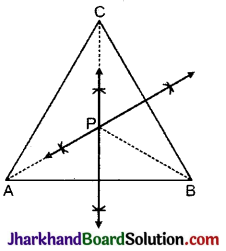
![]()


![]()
